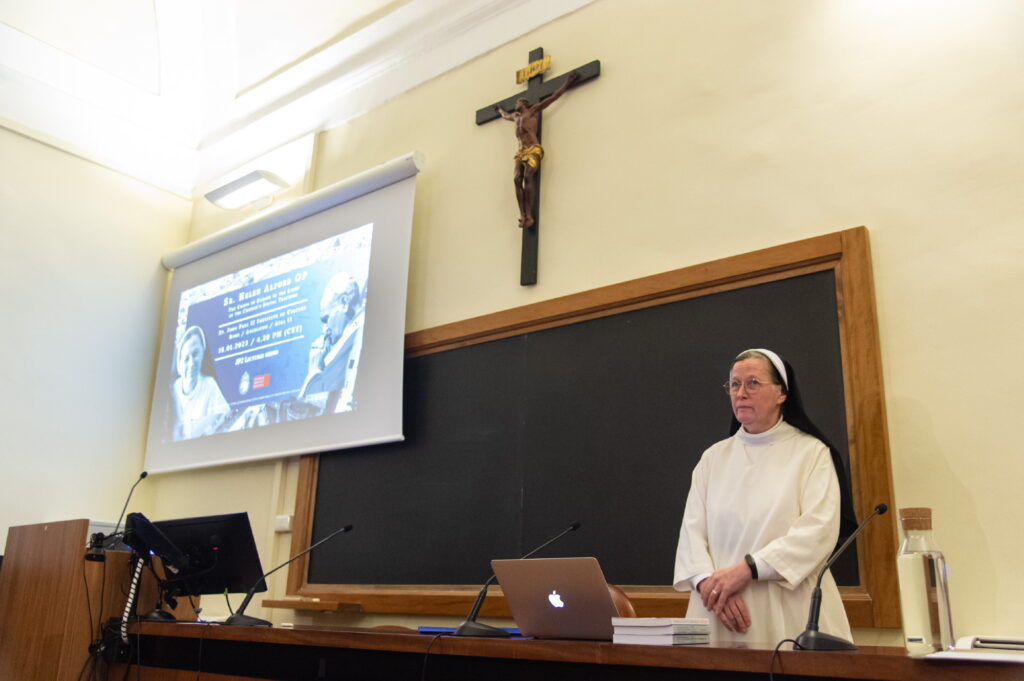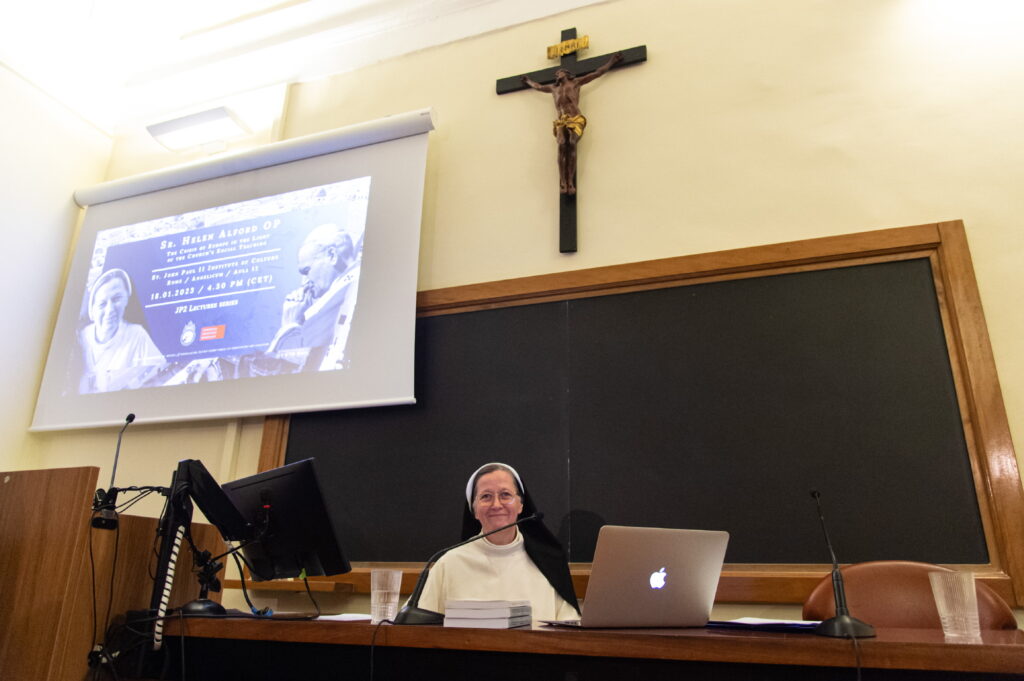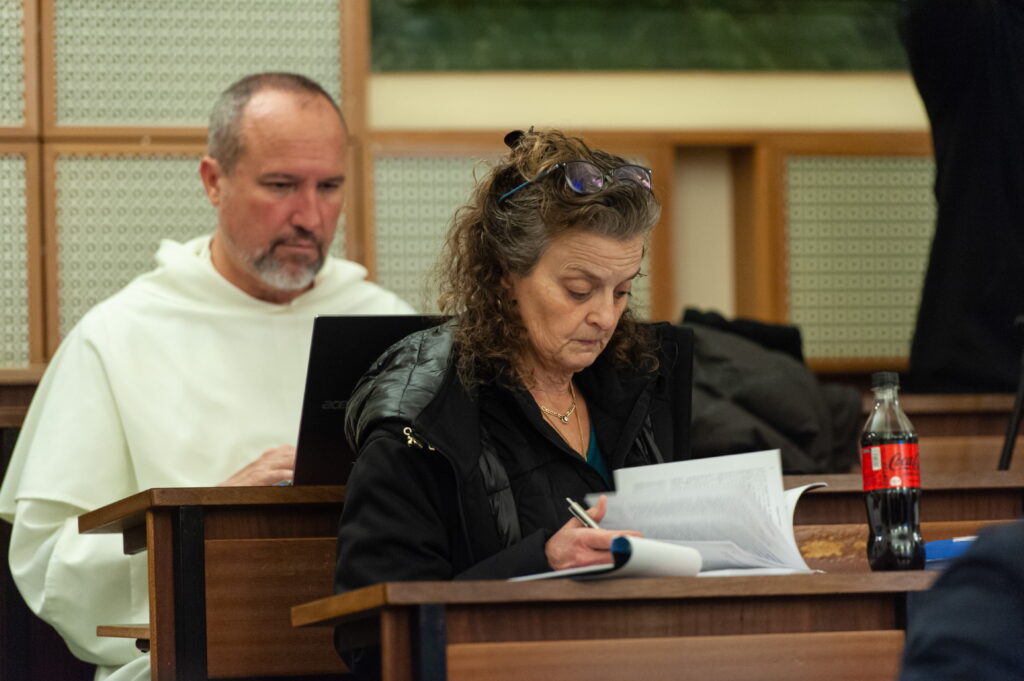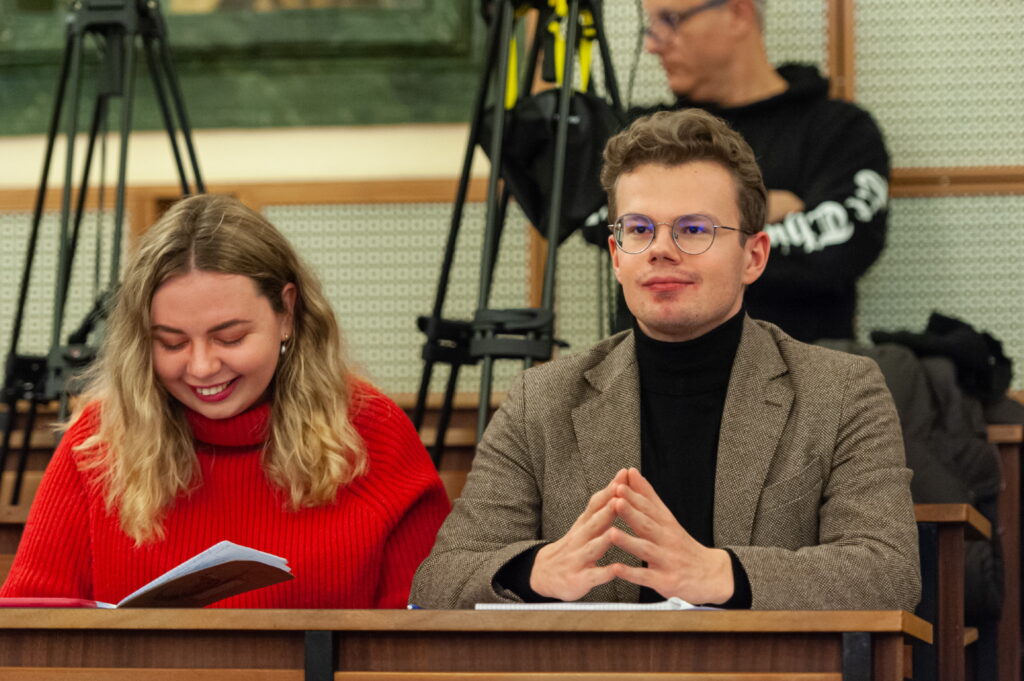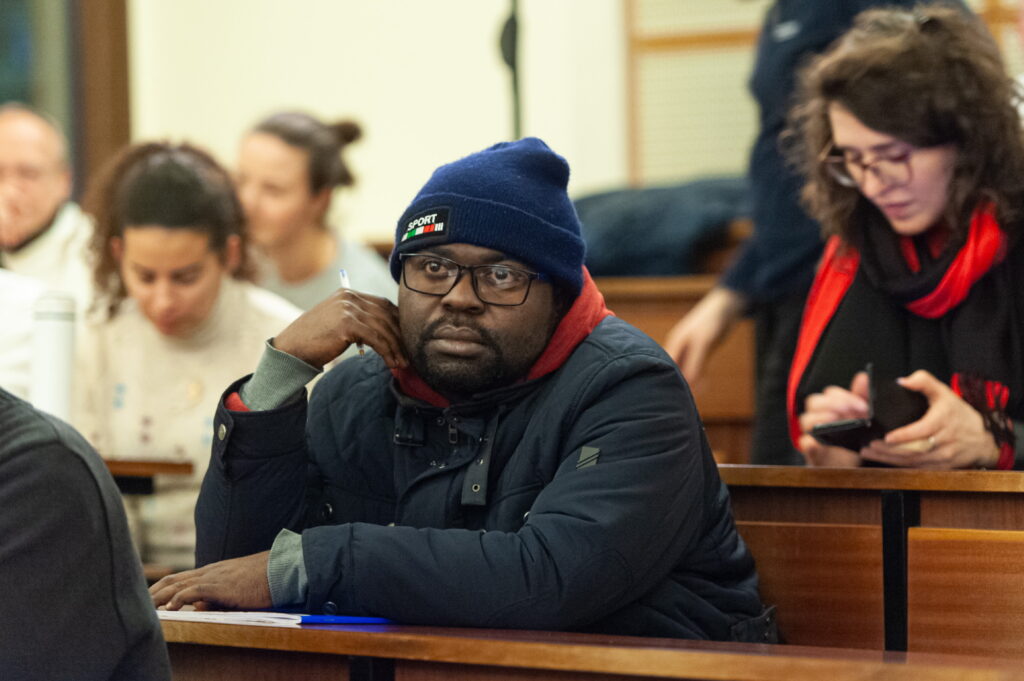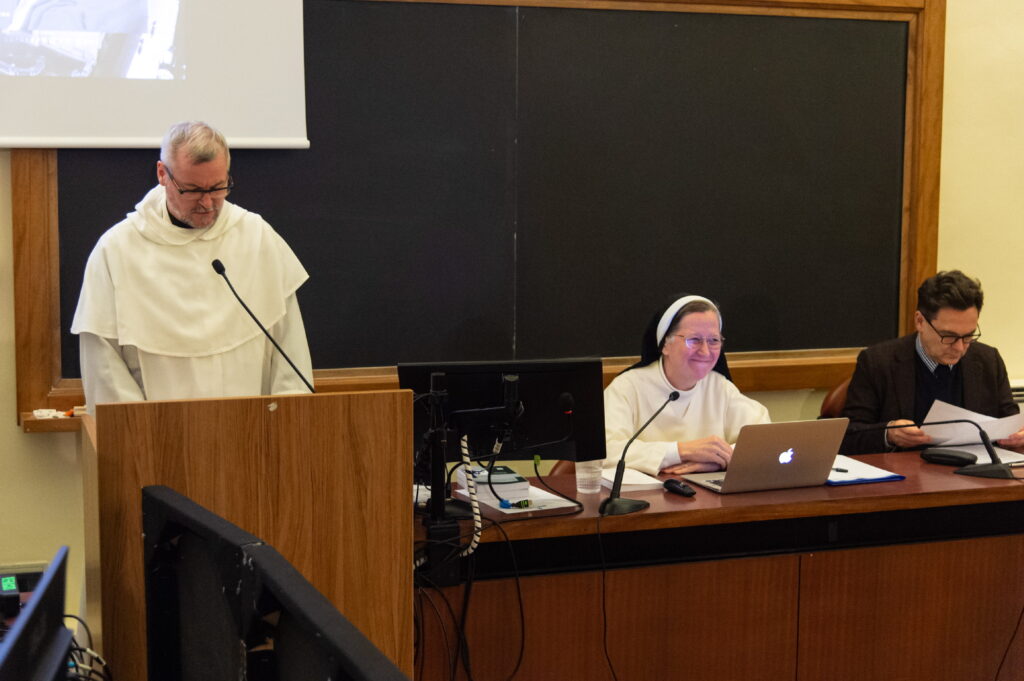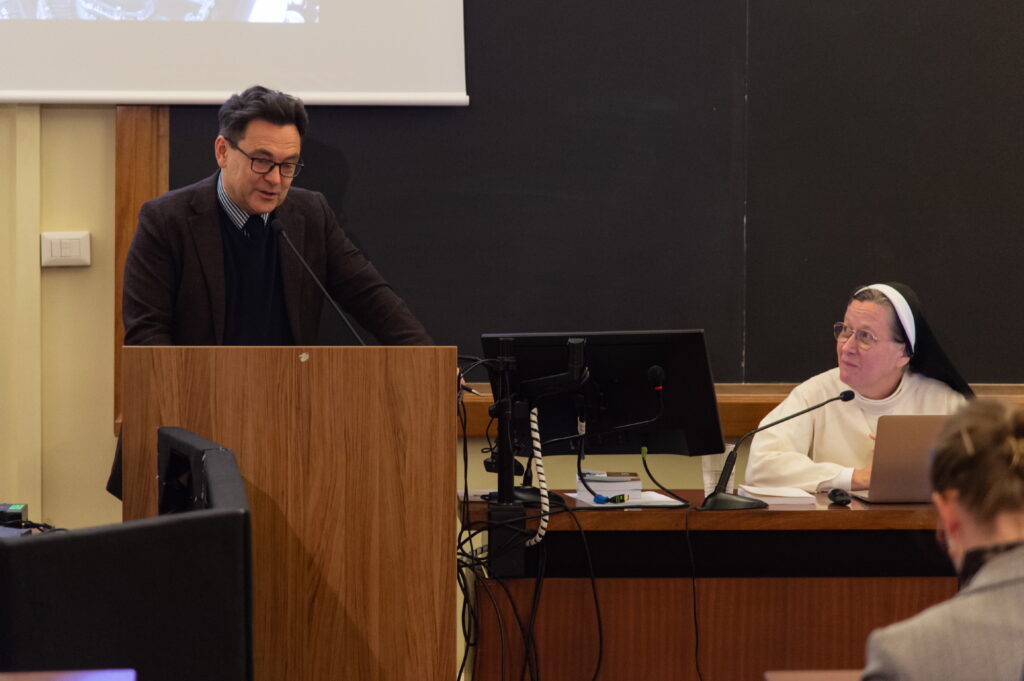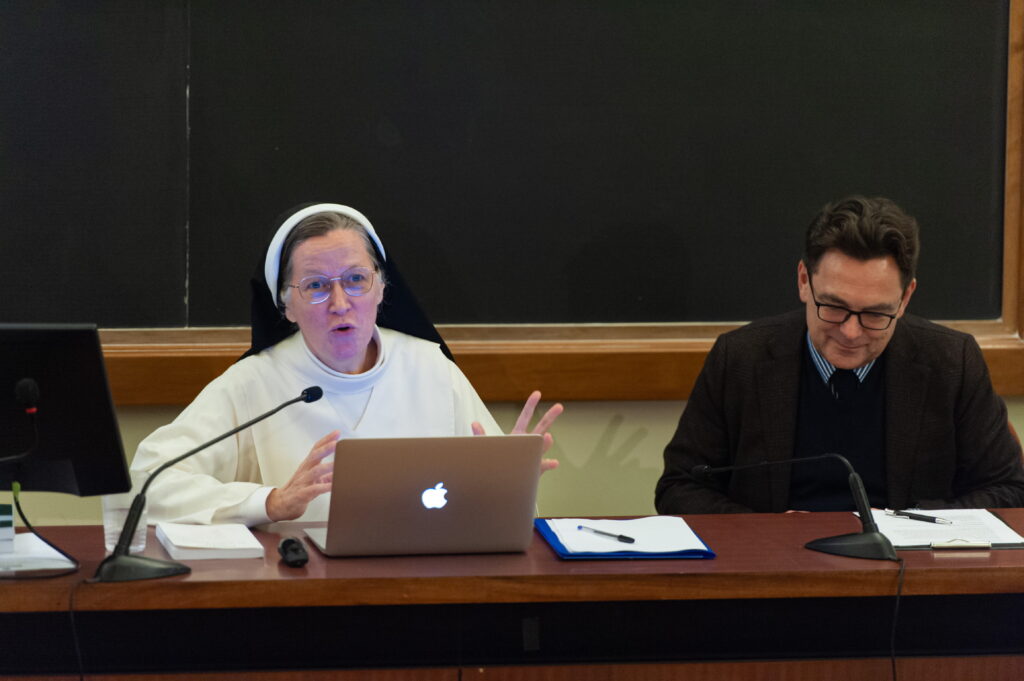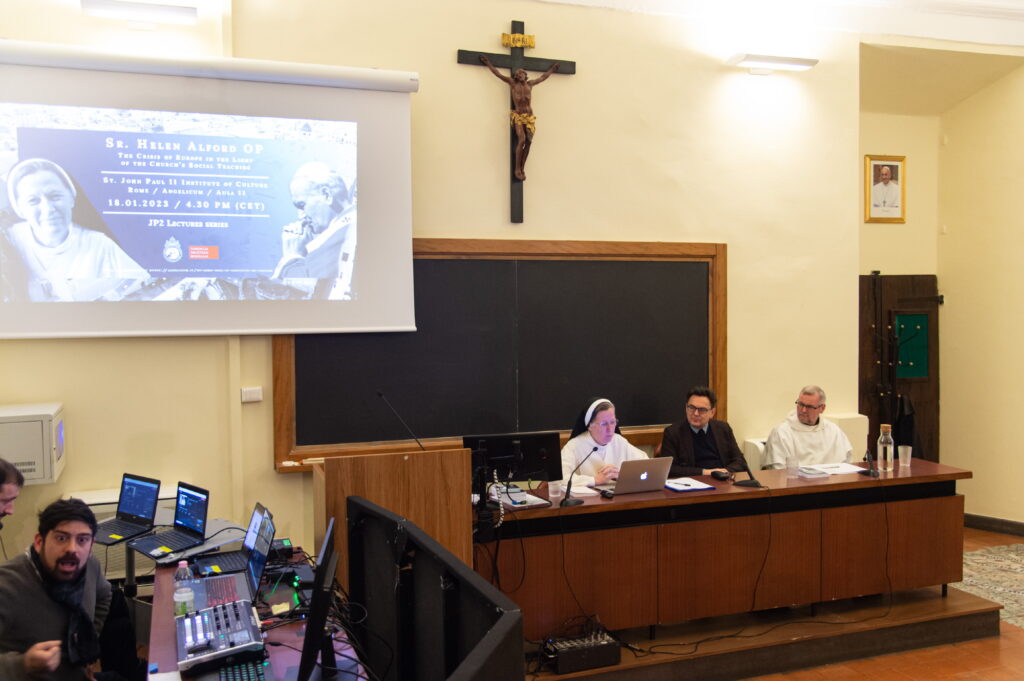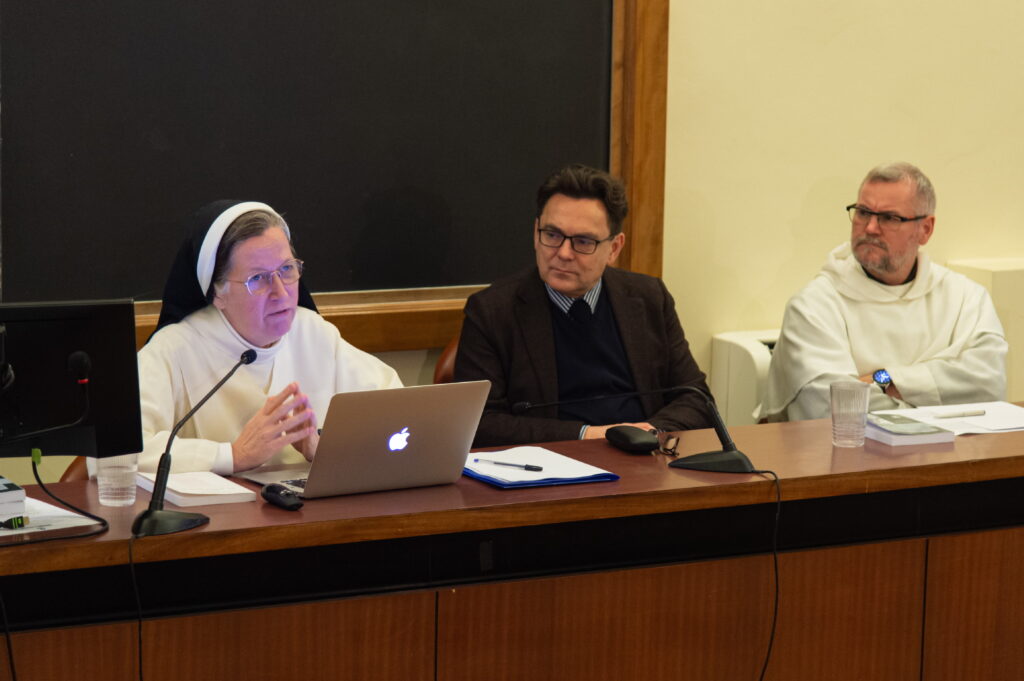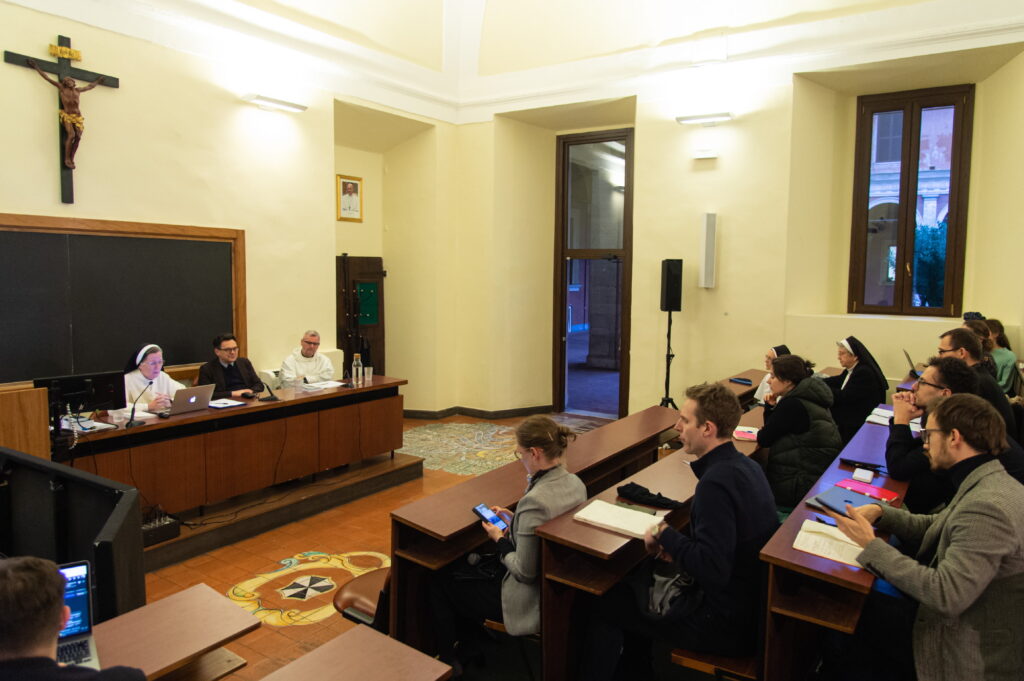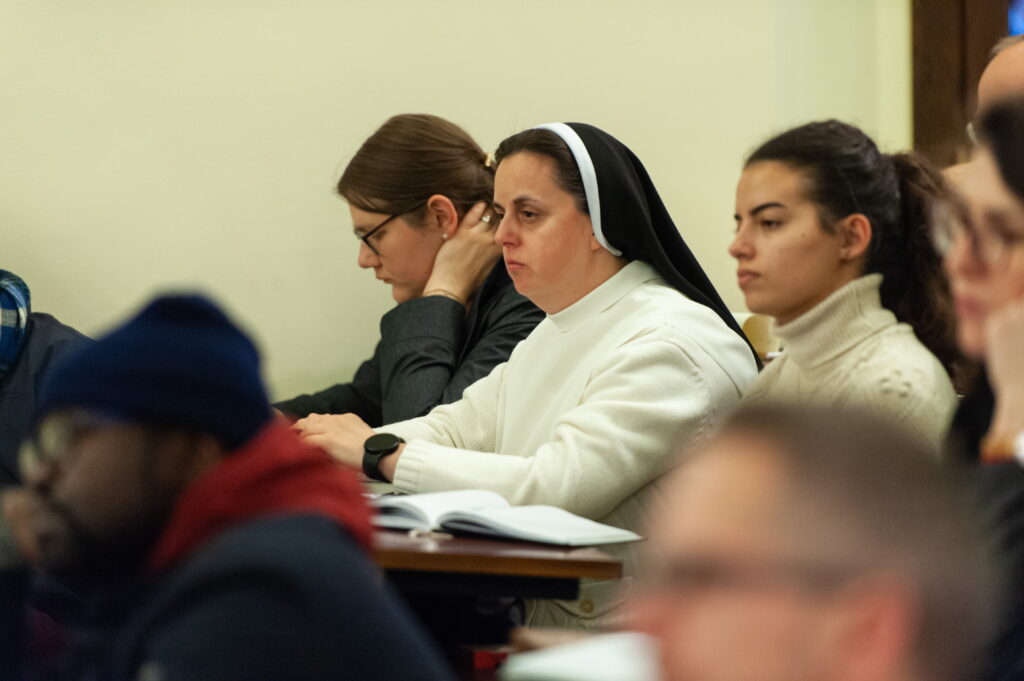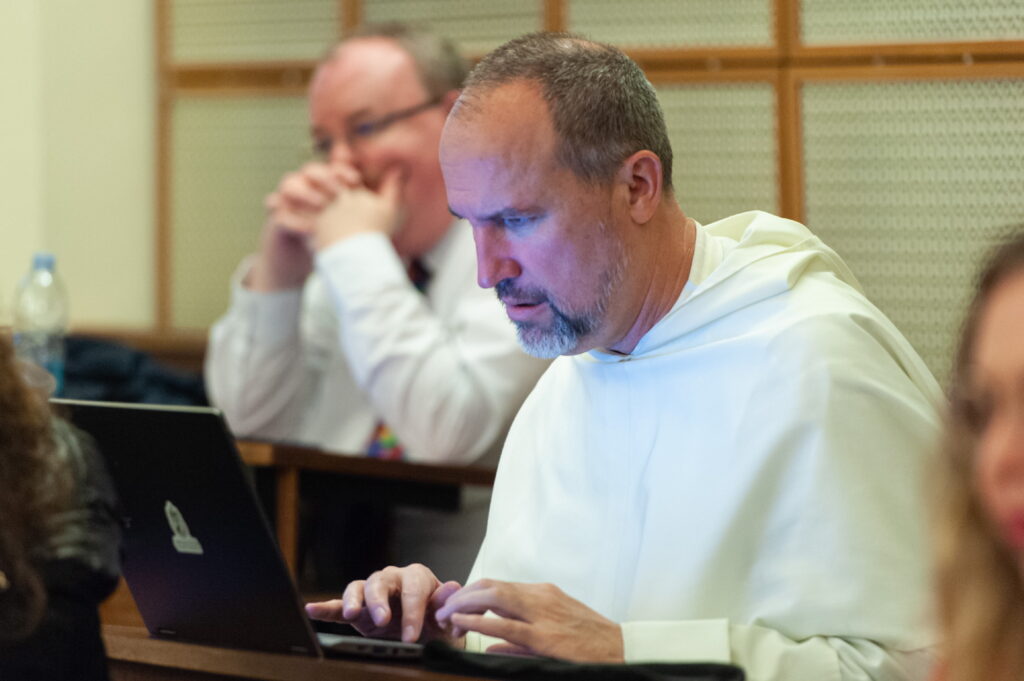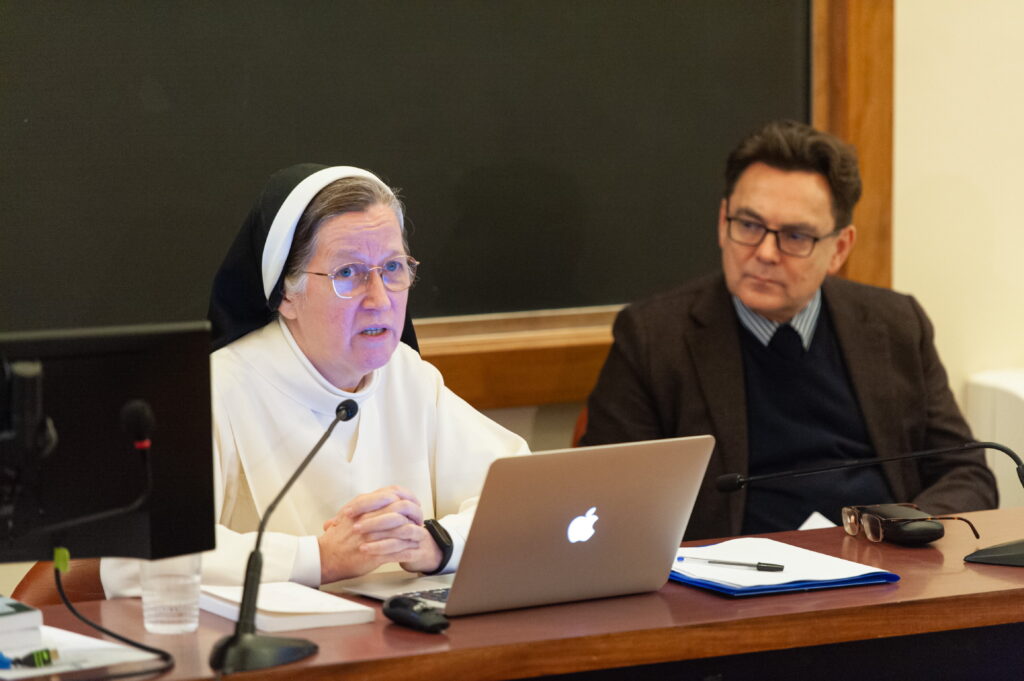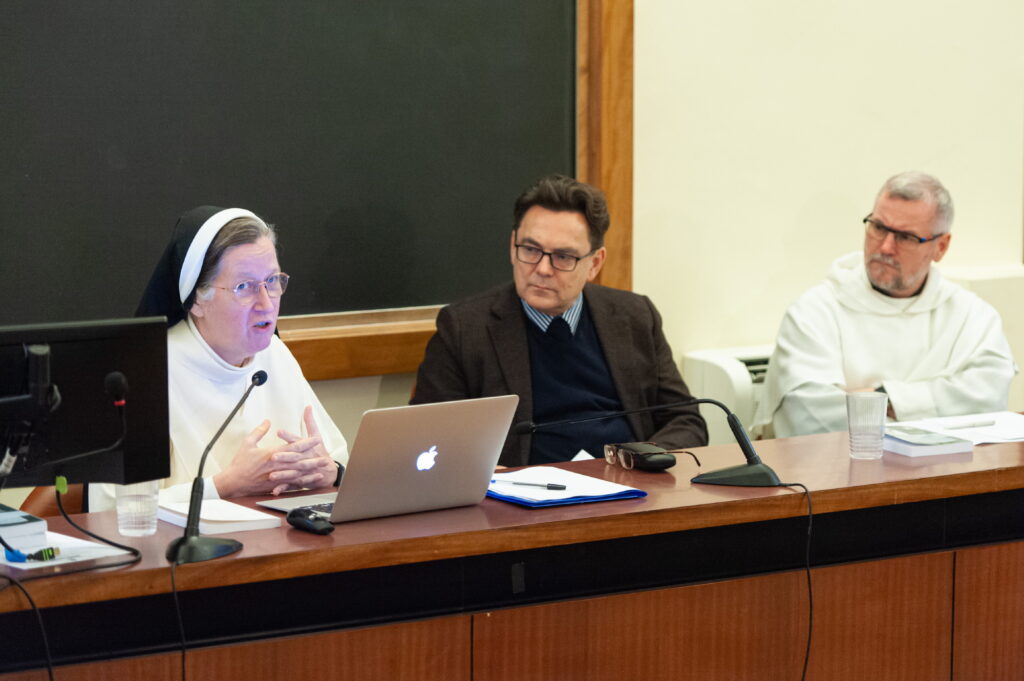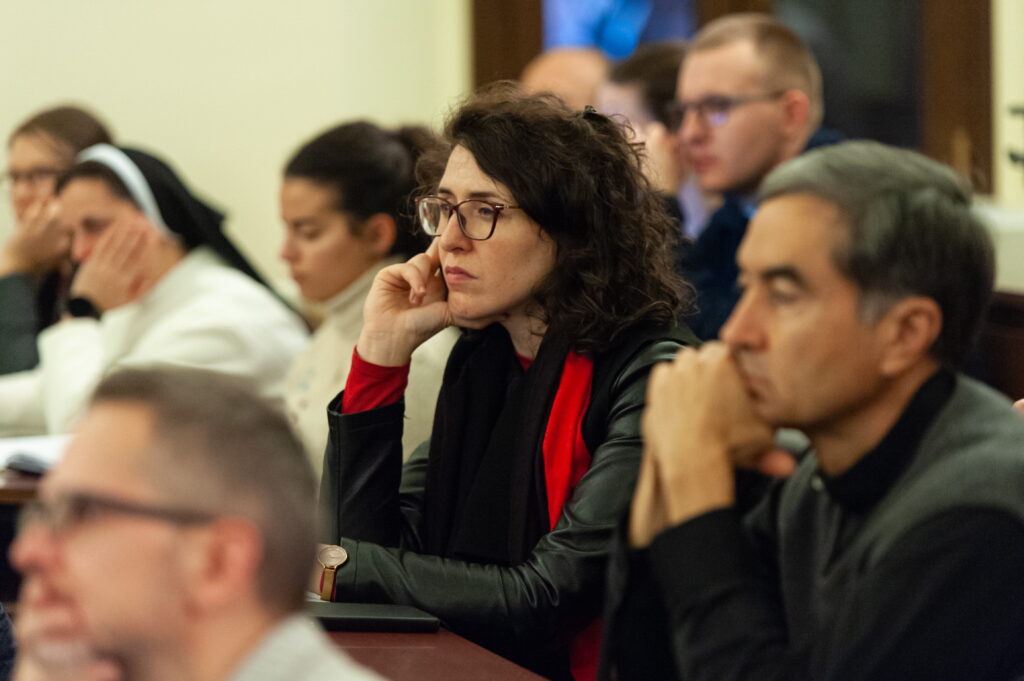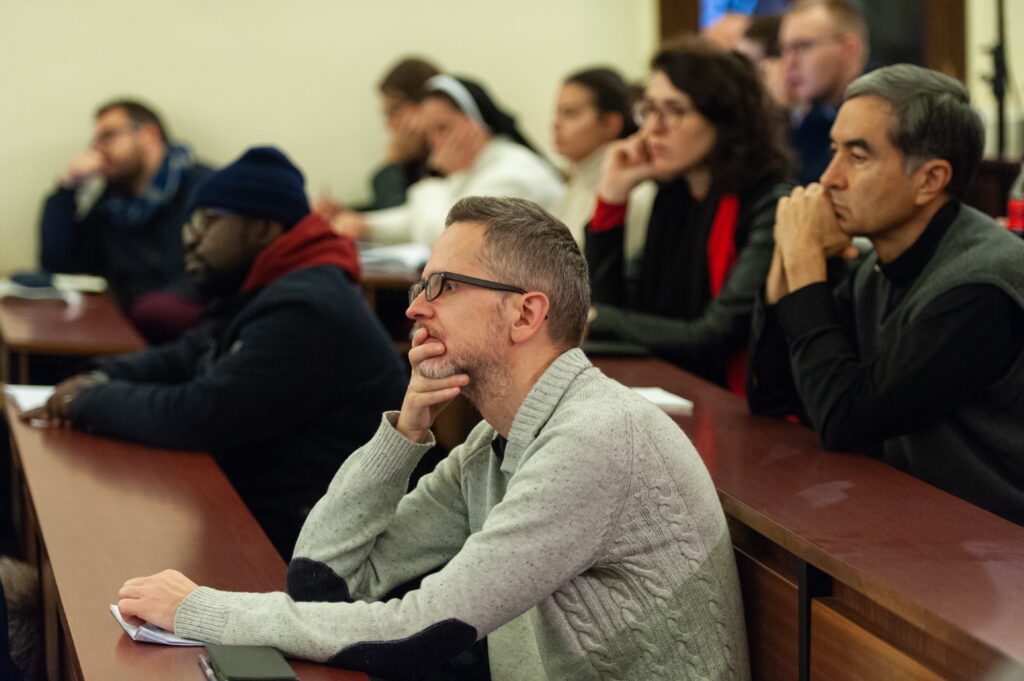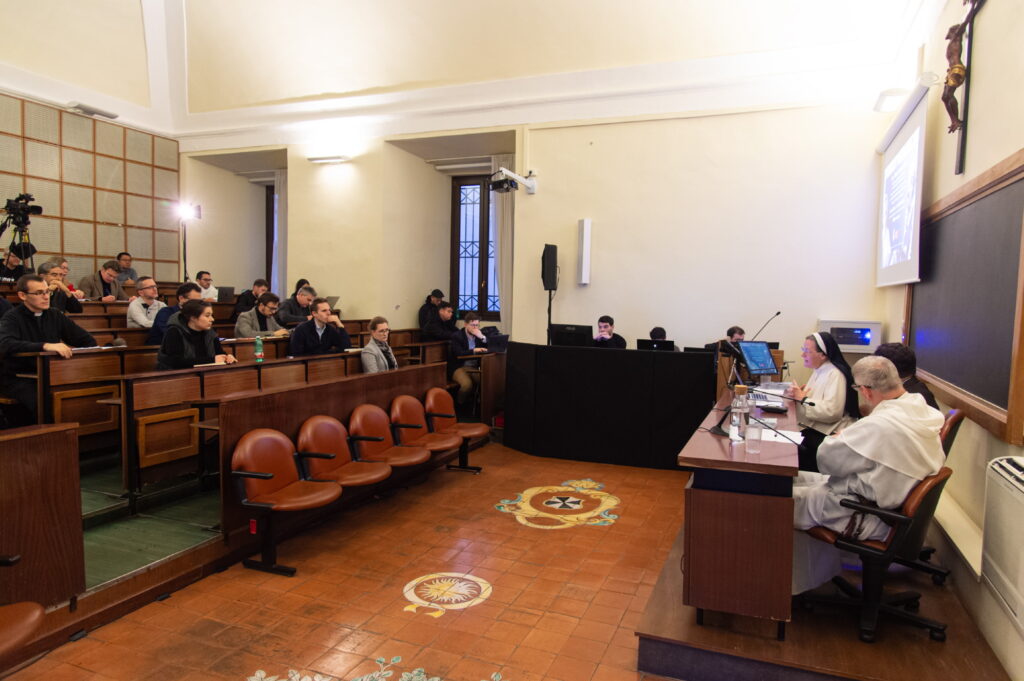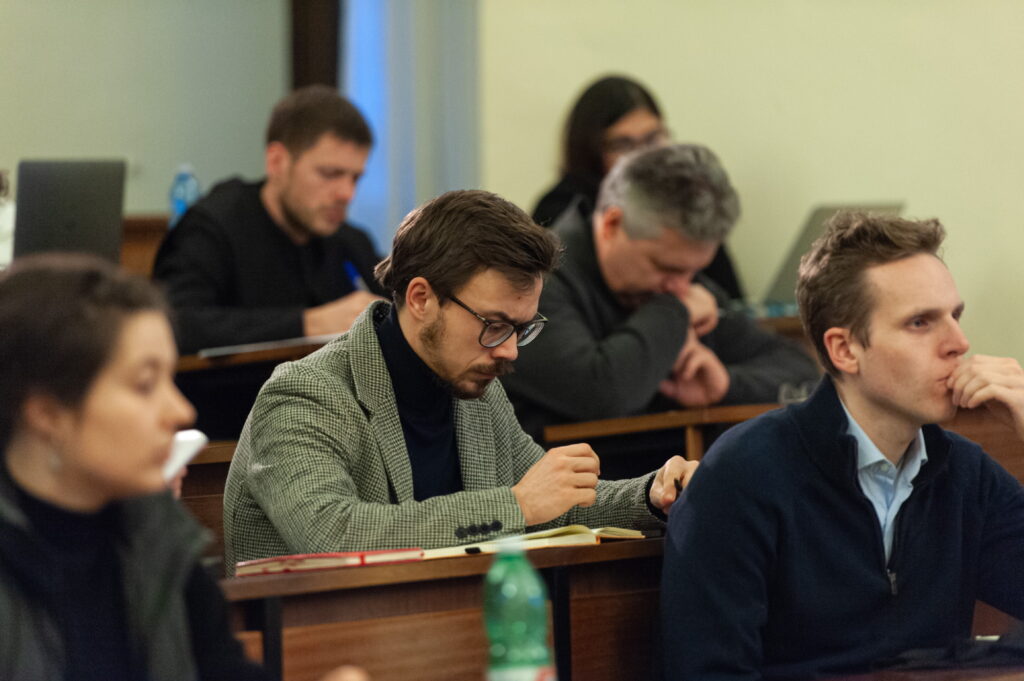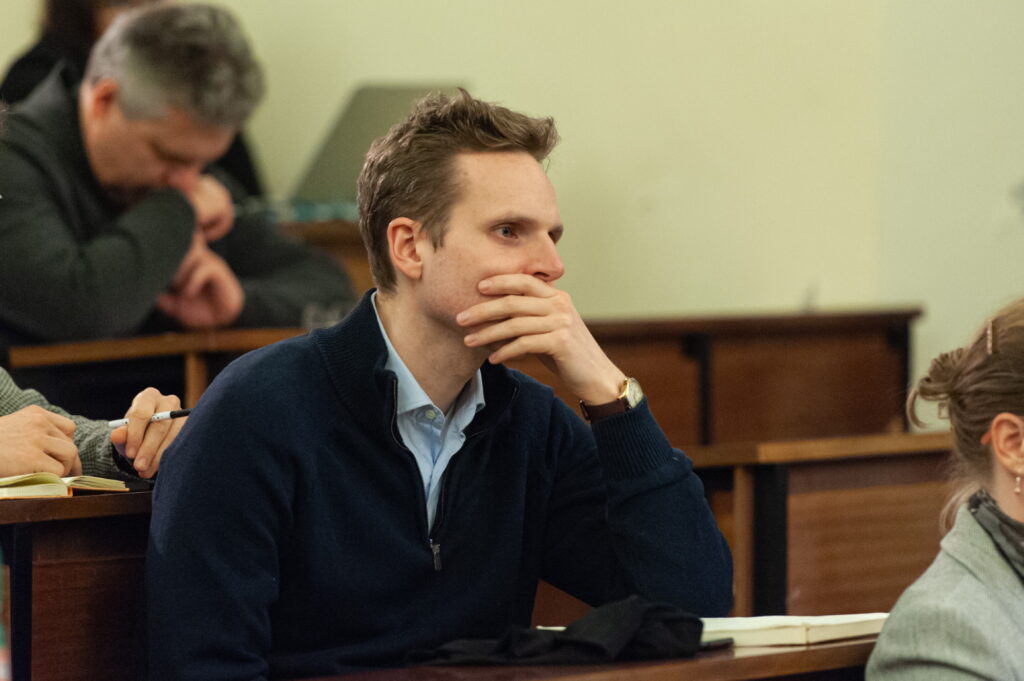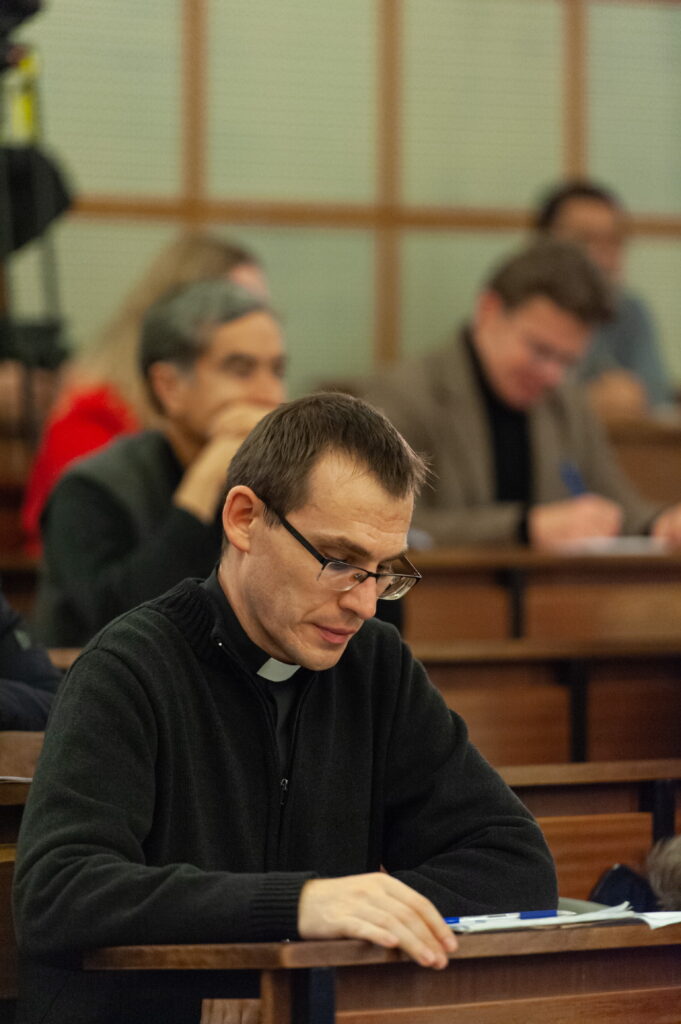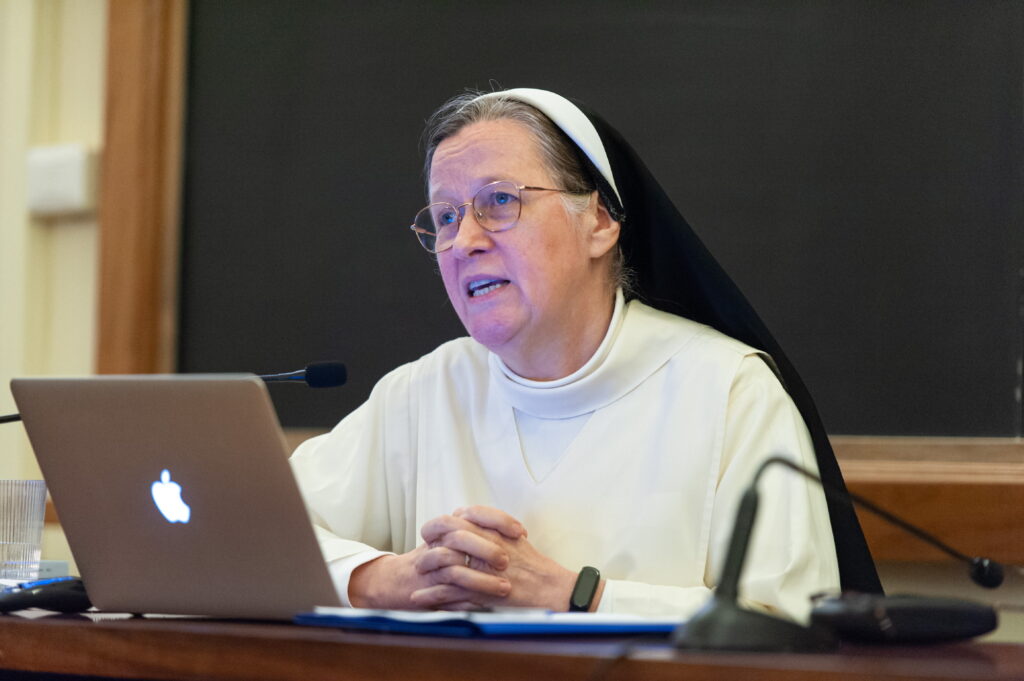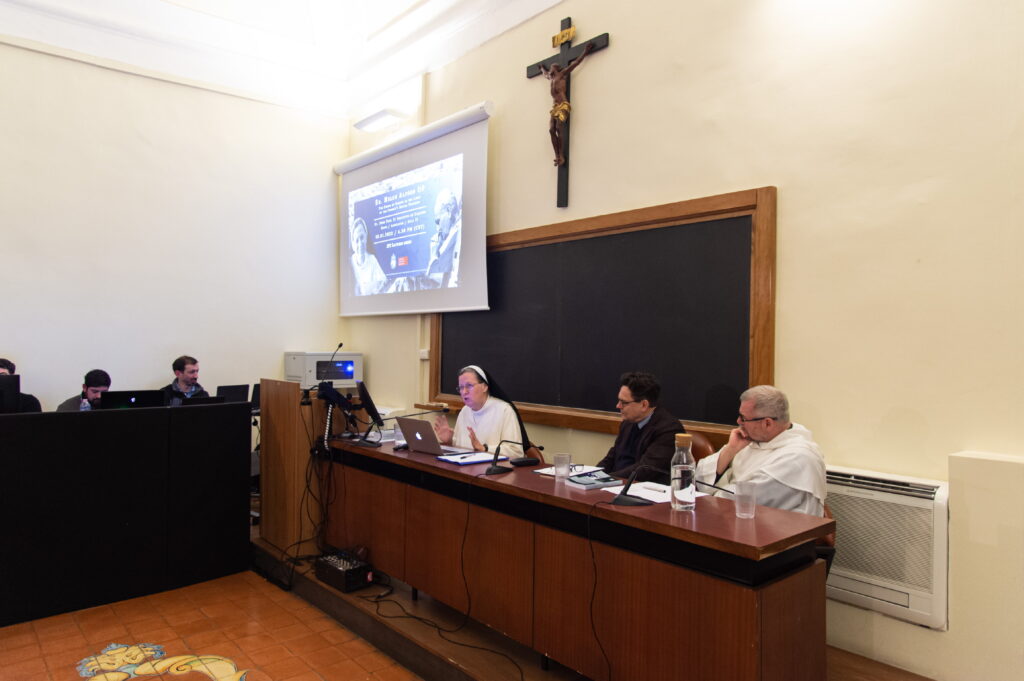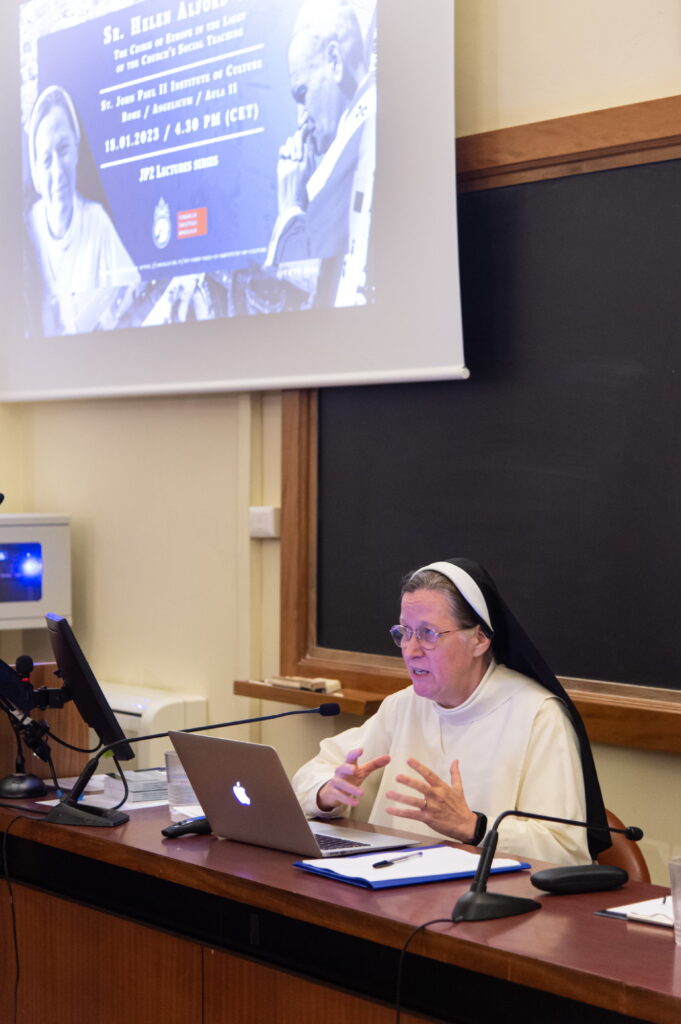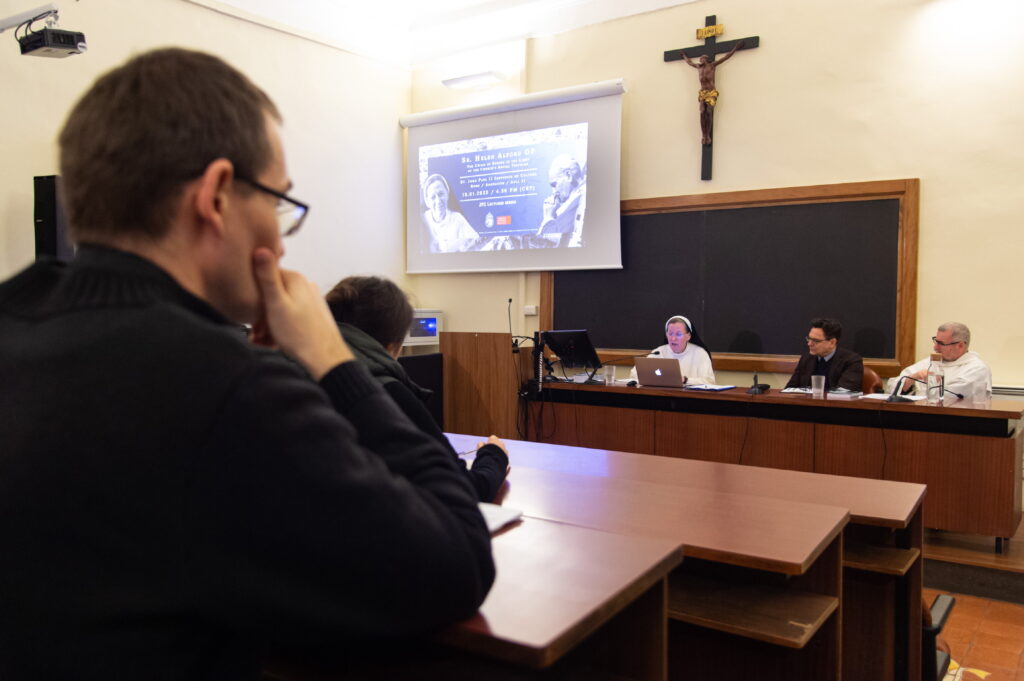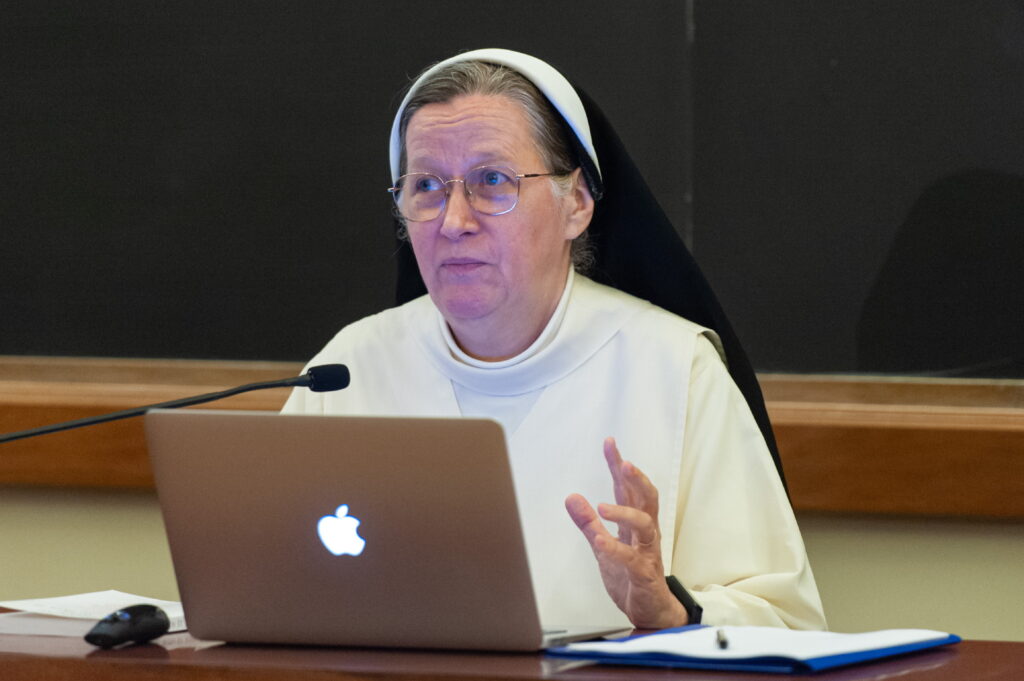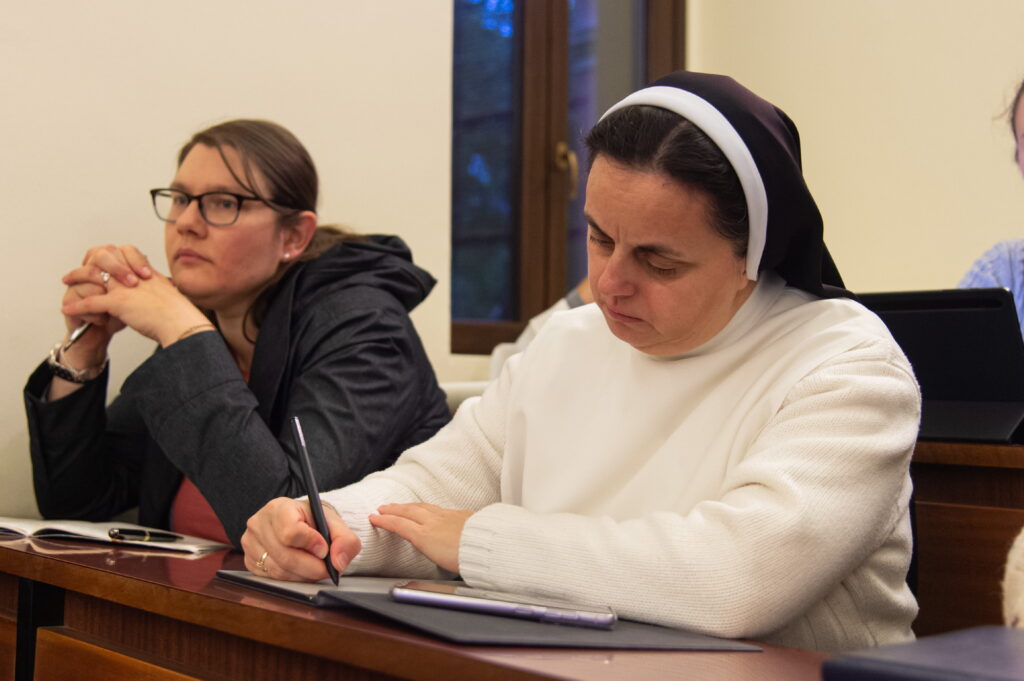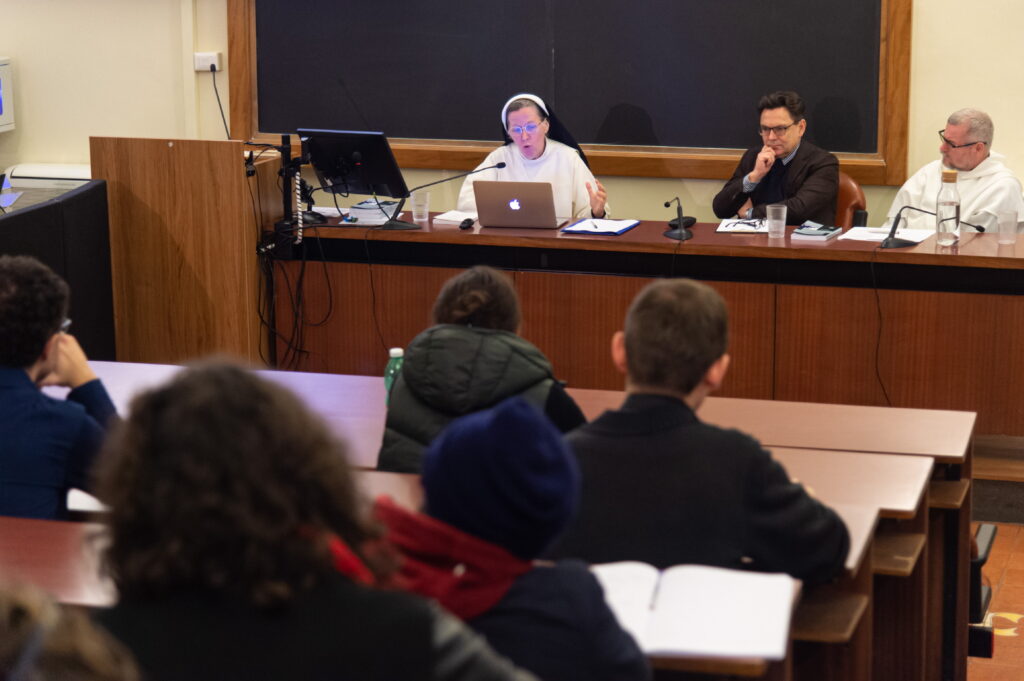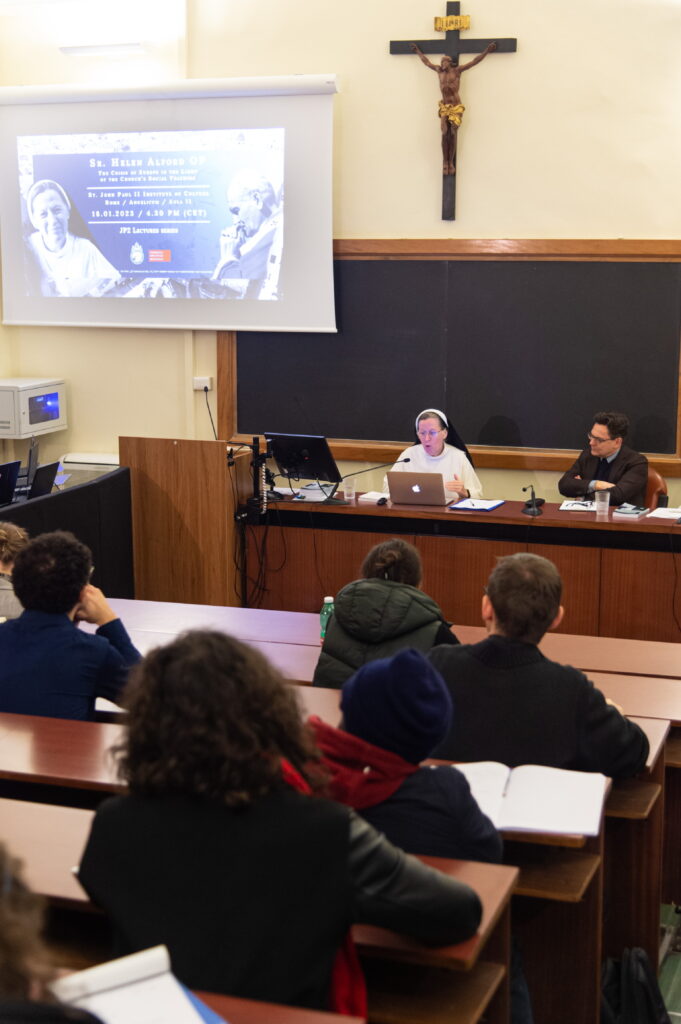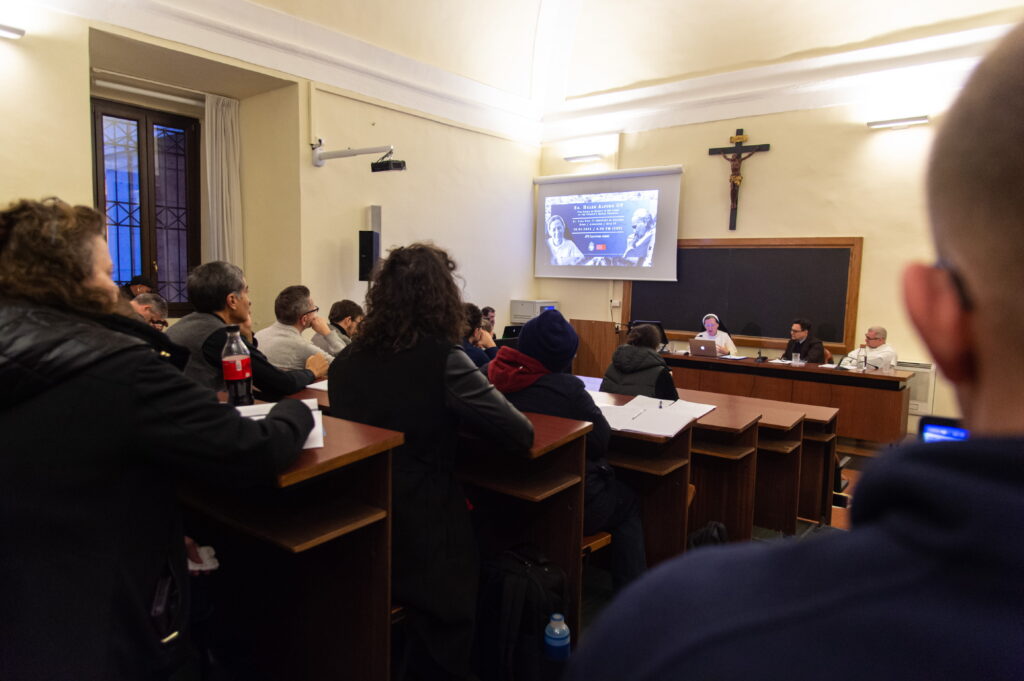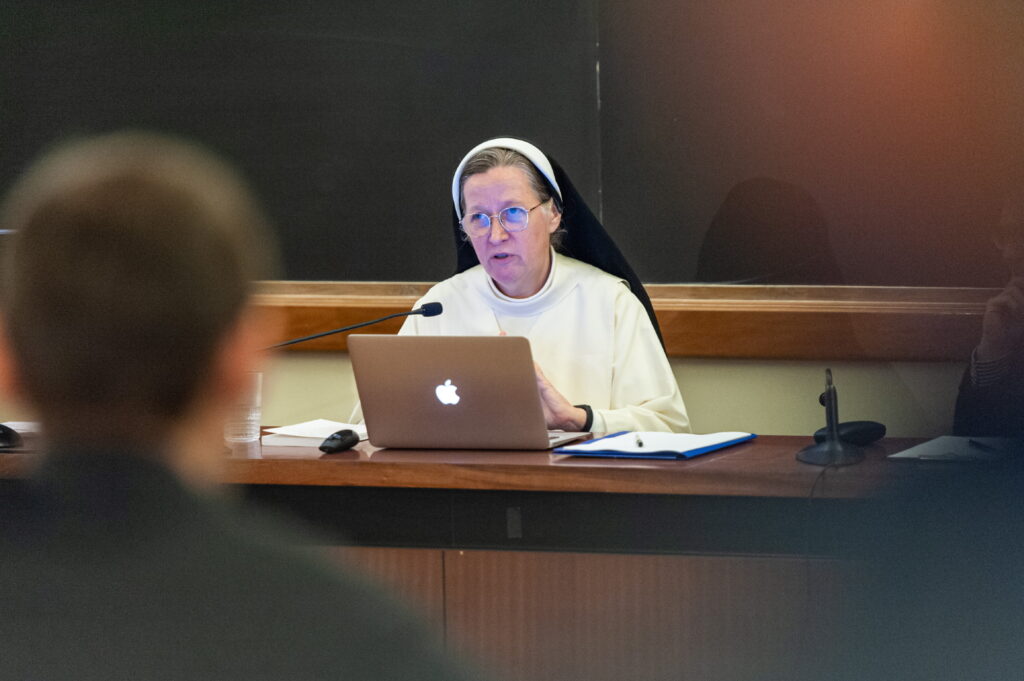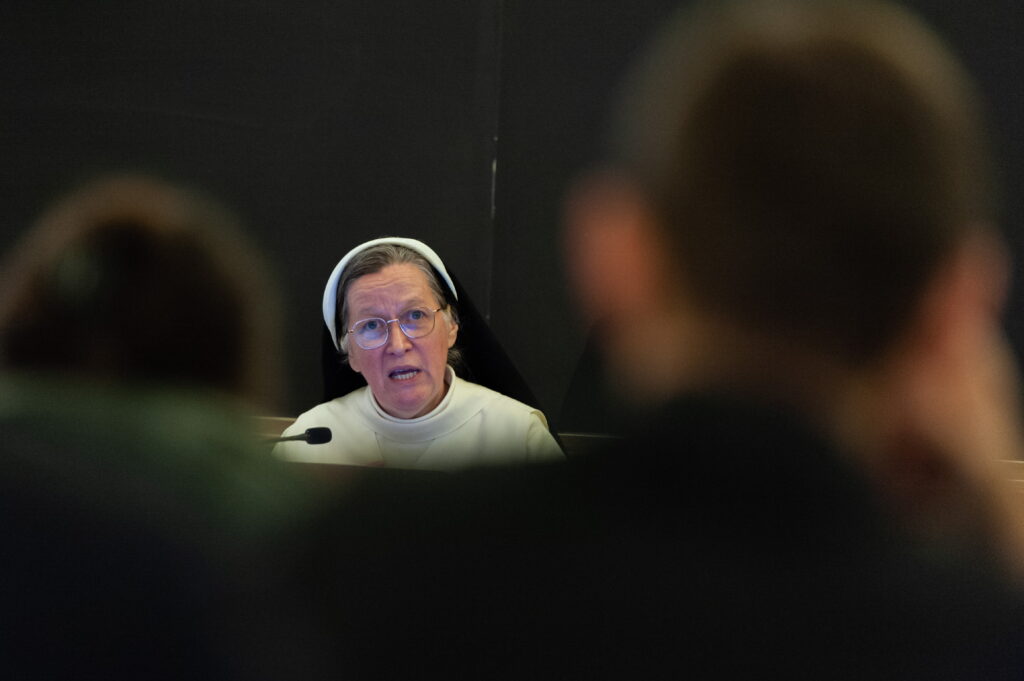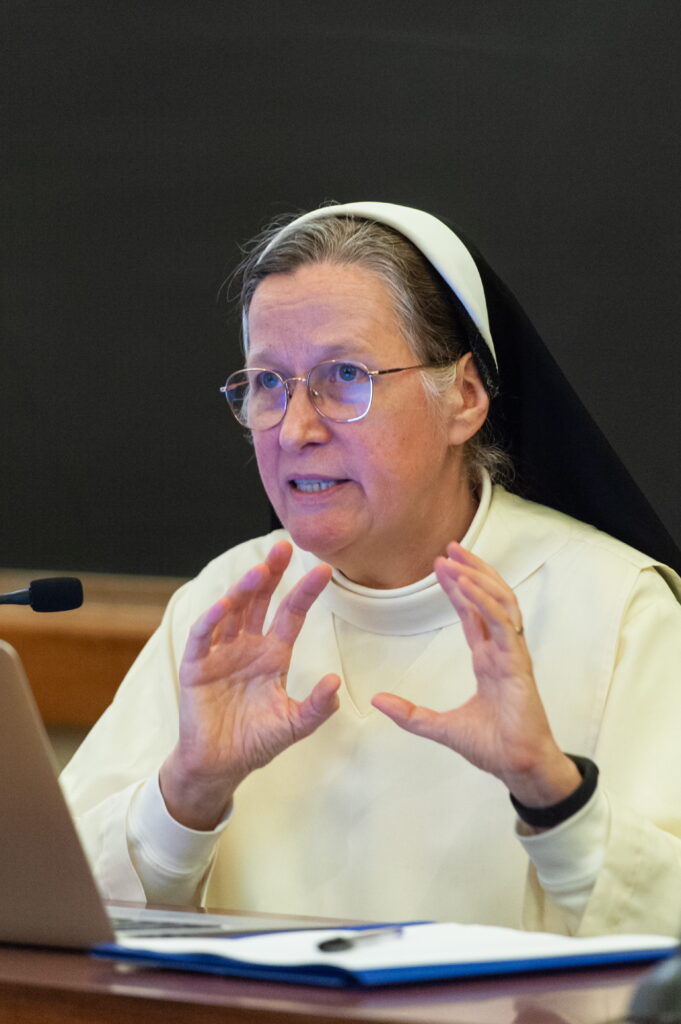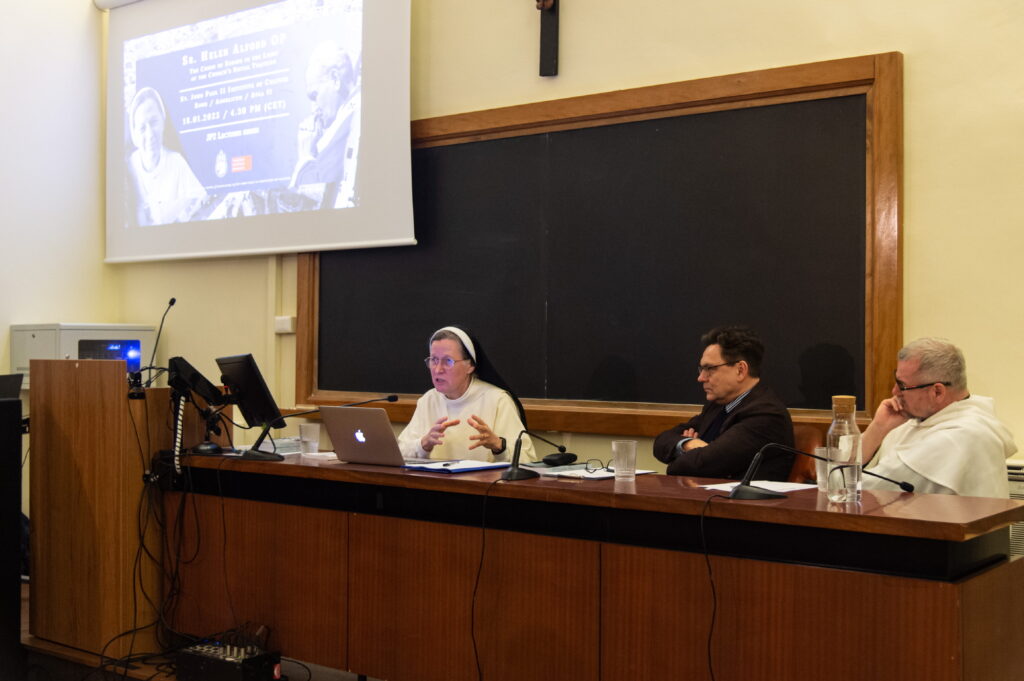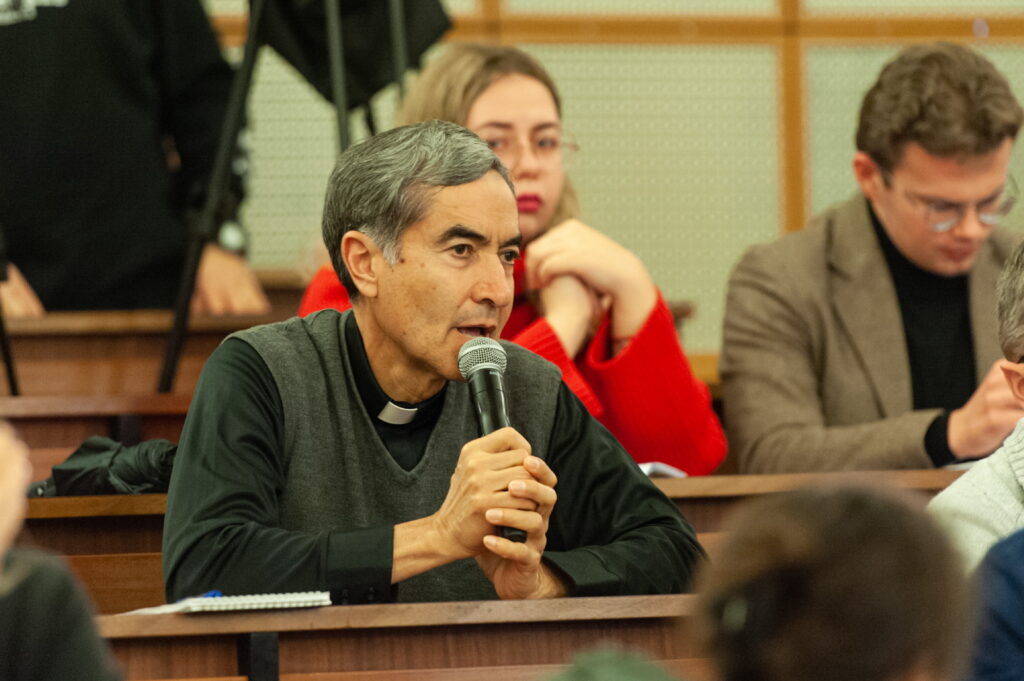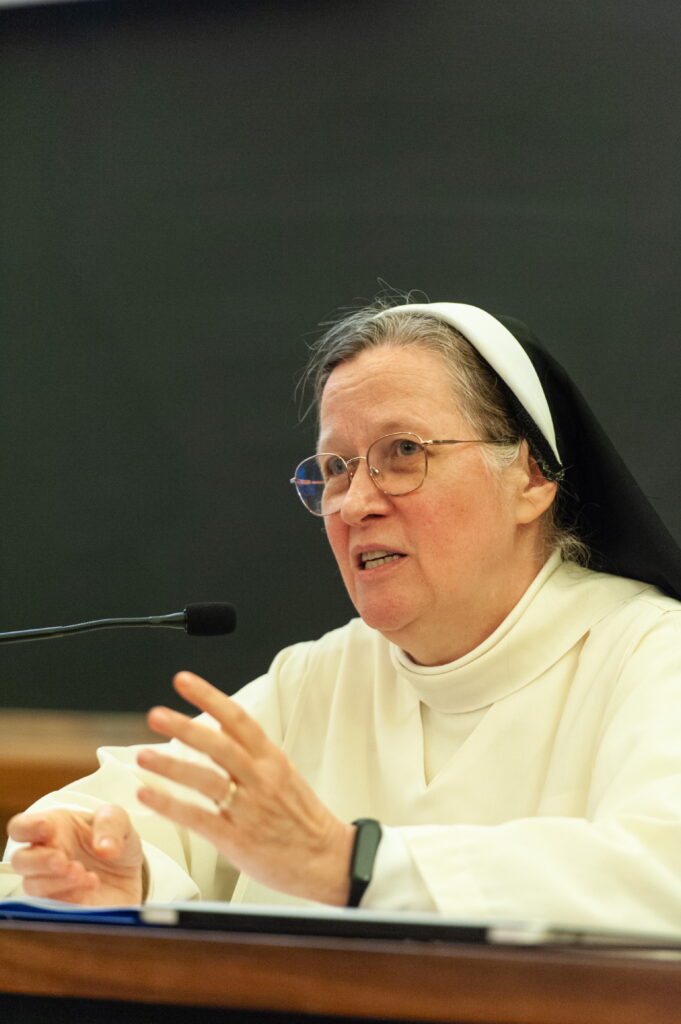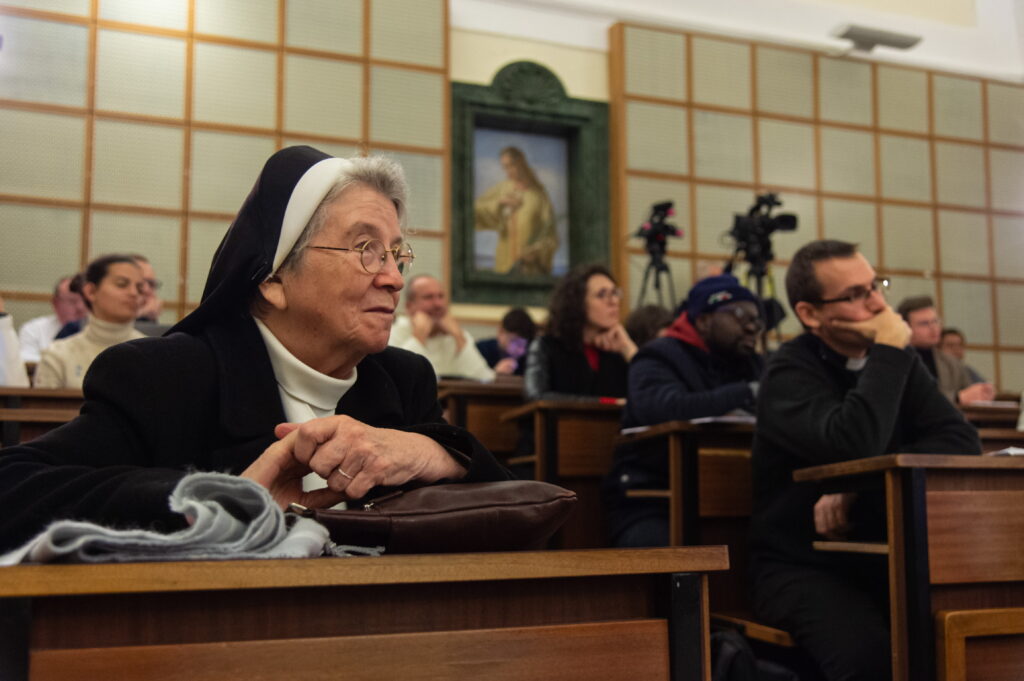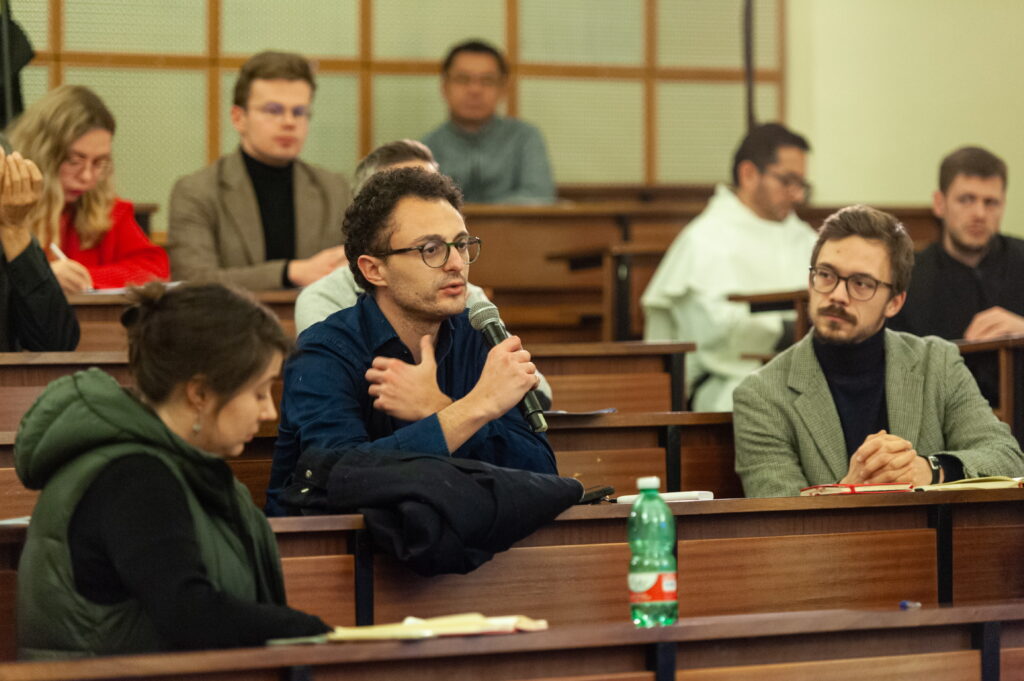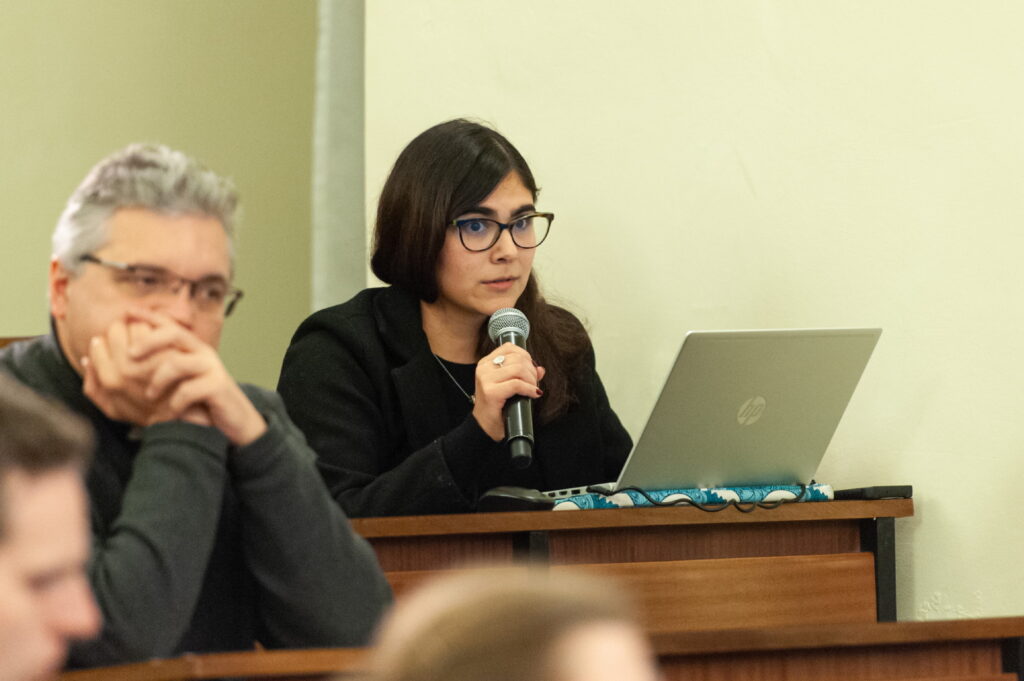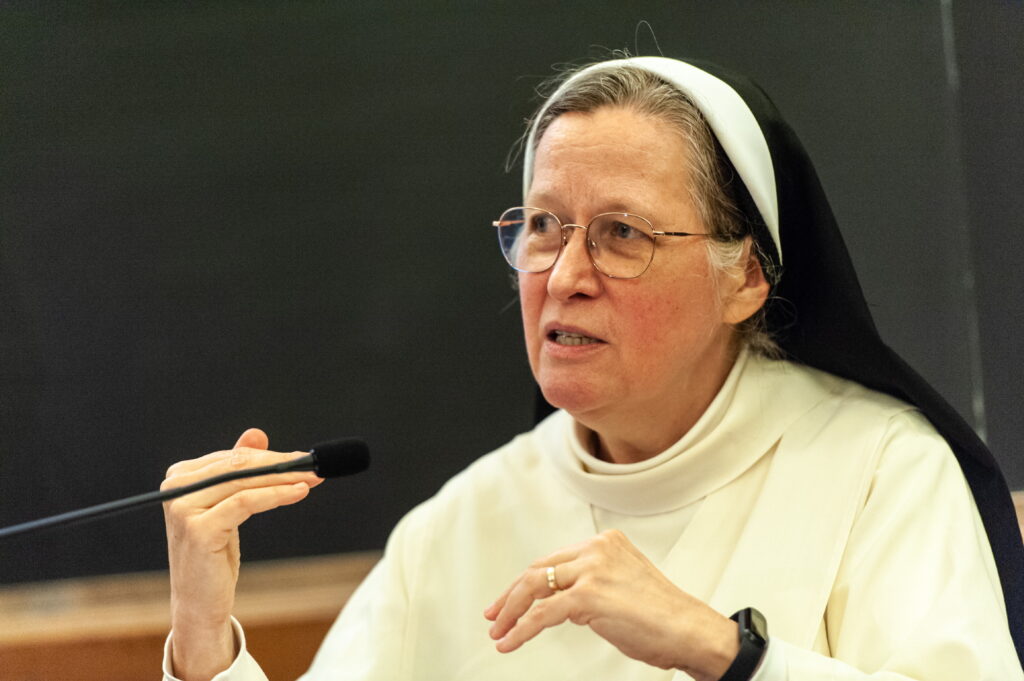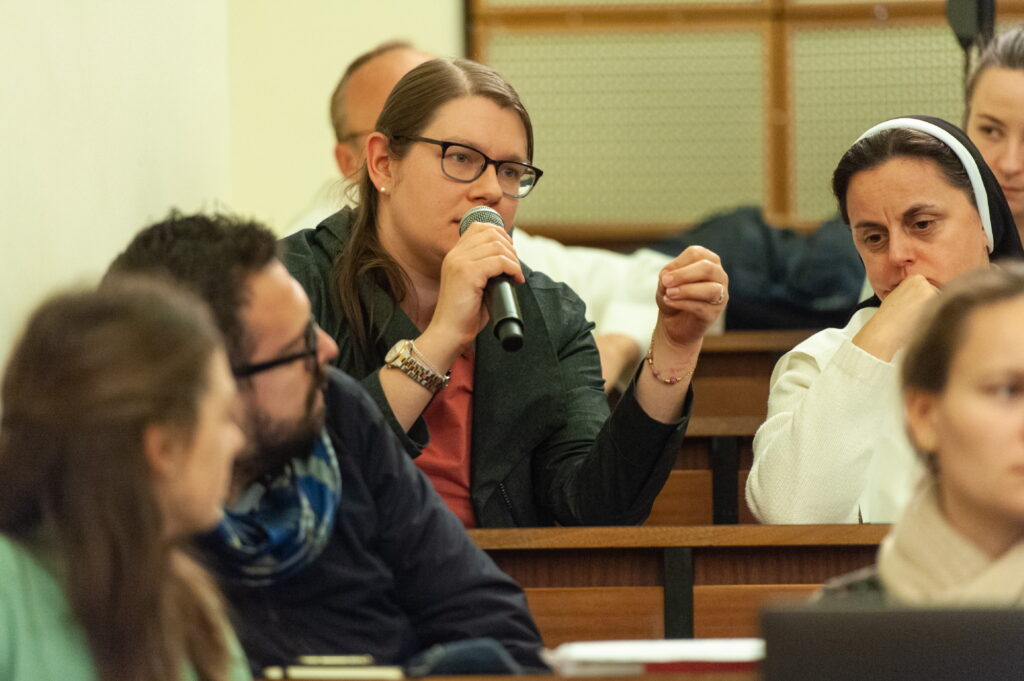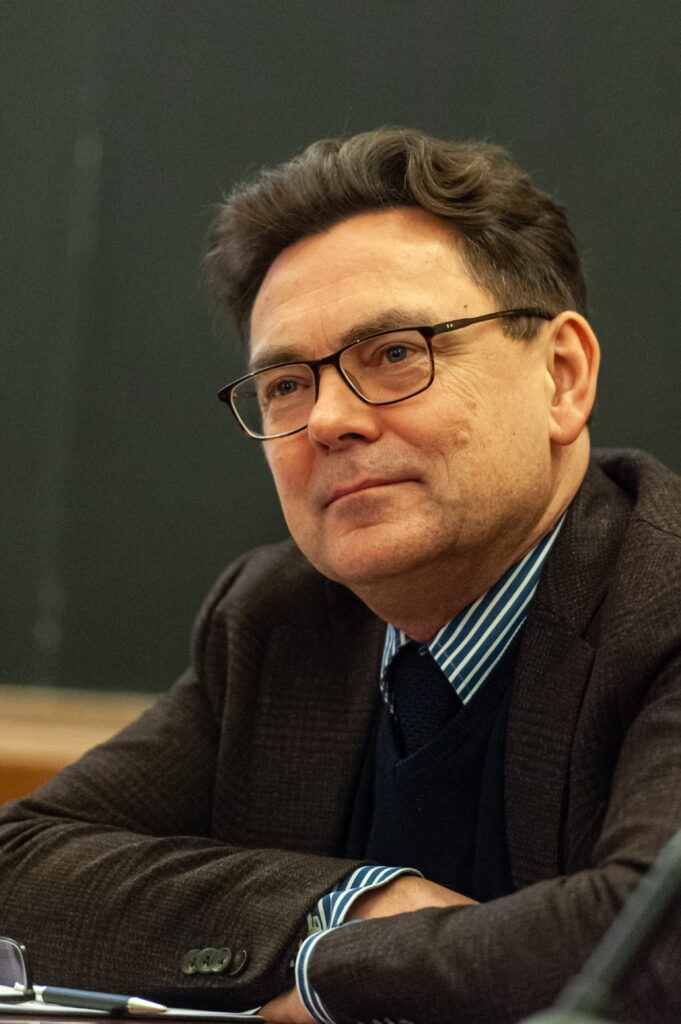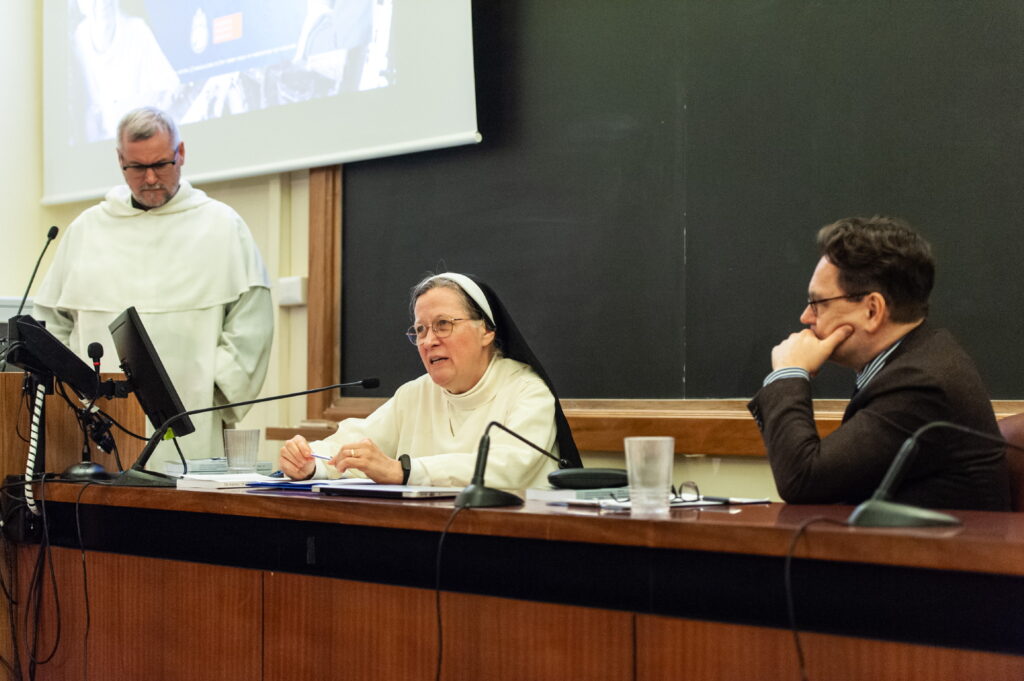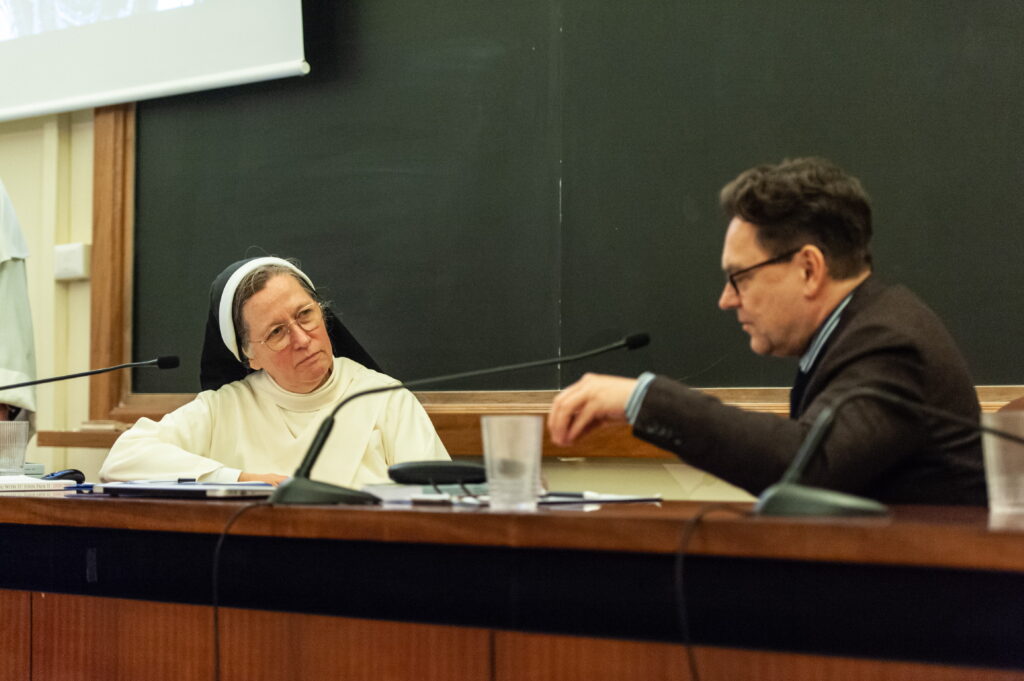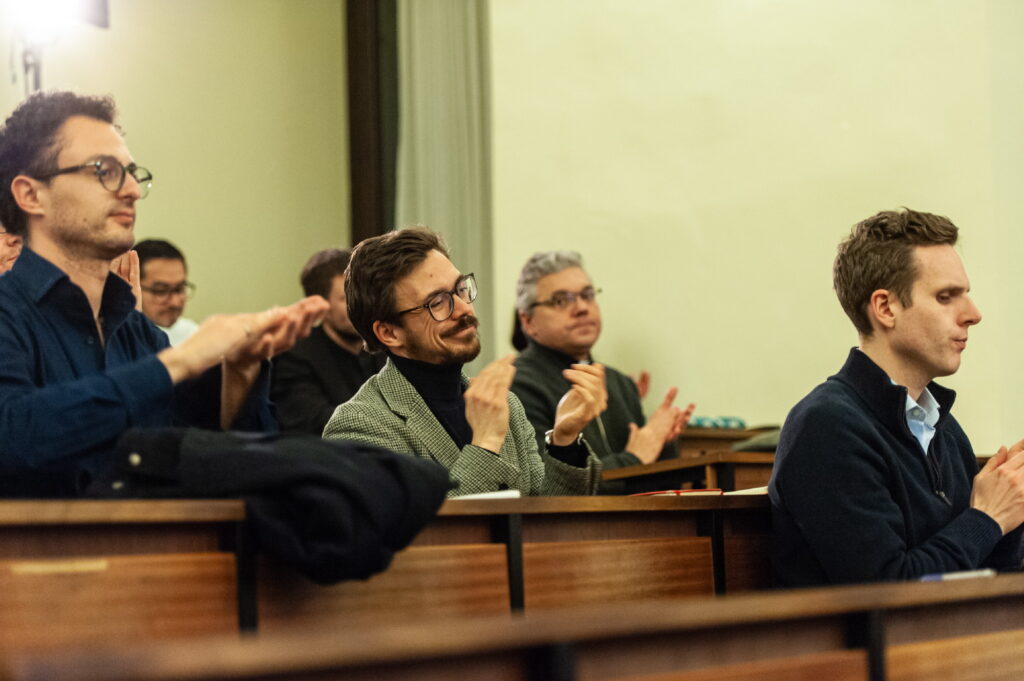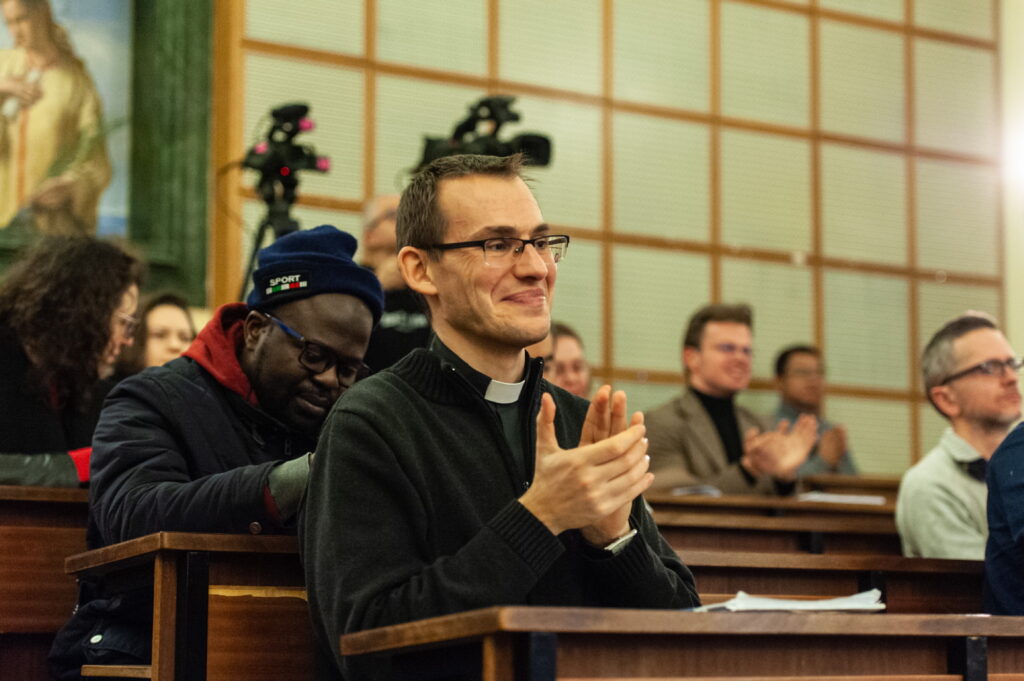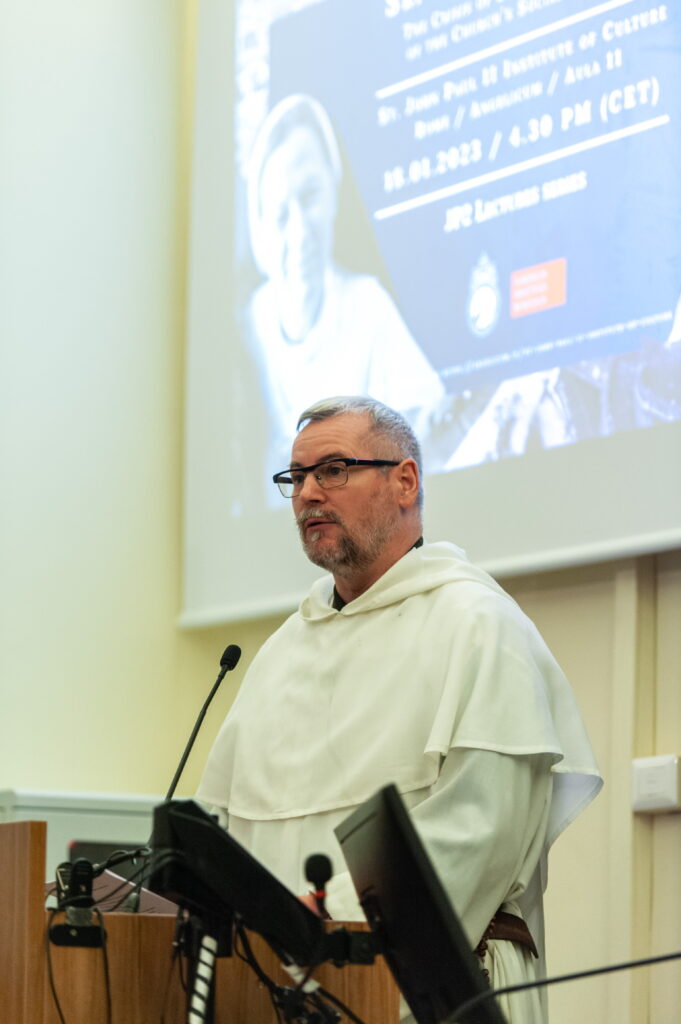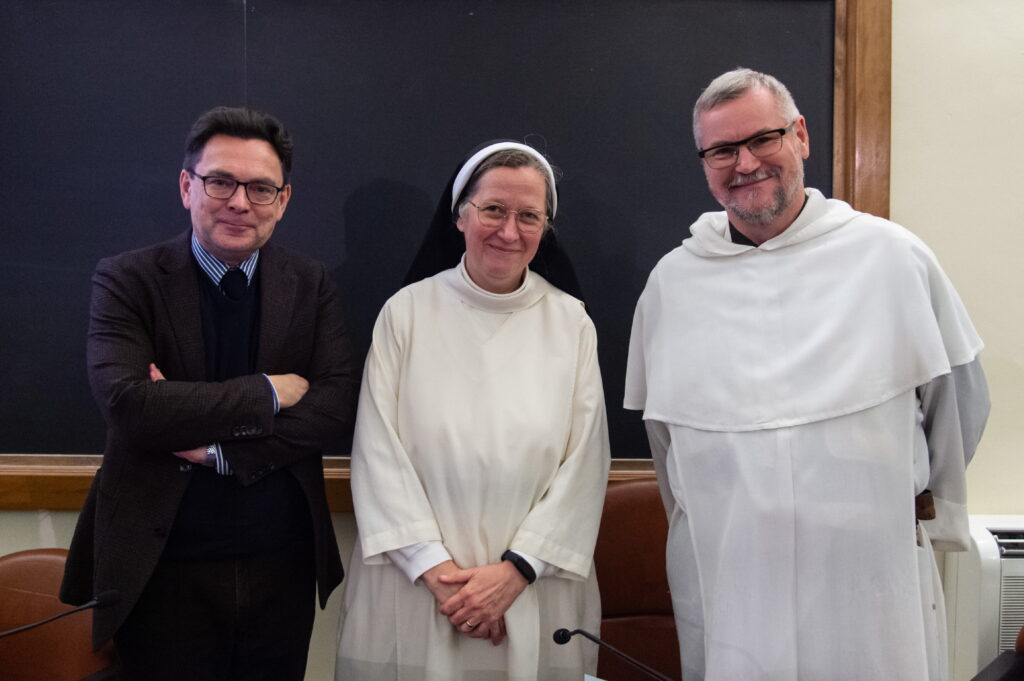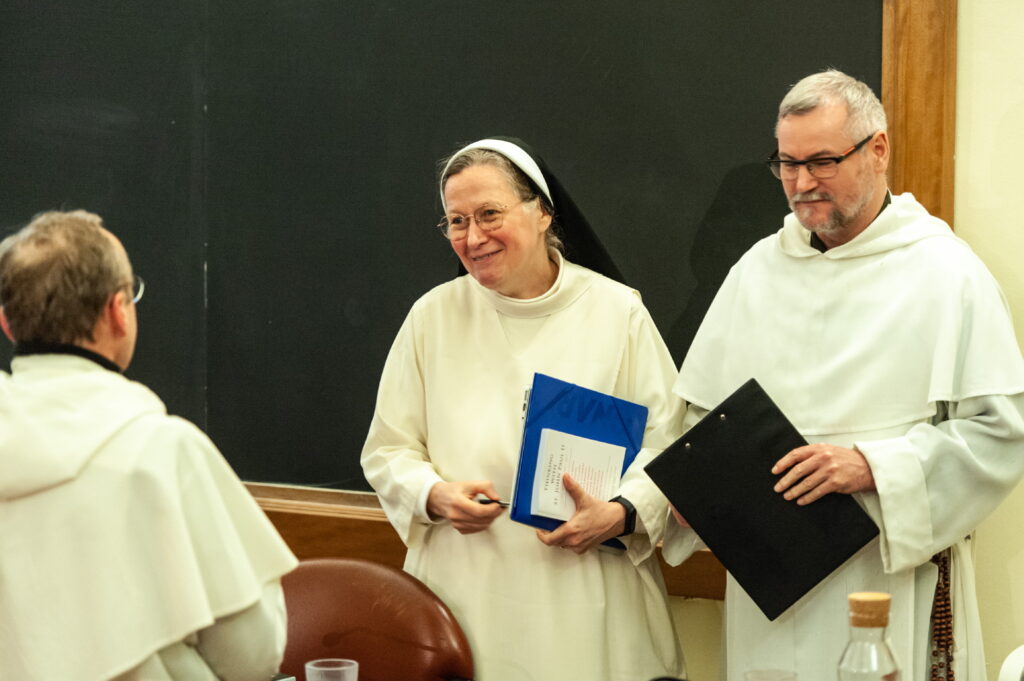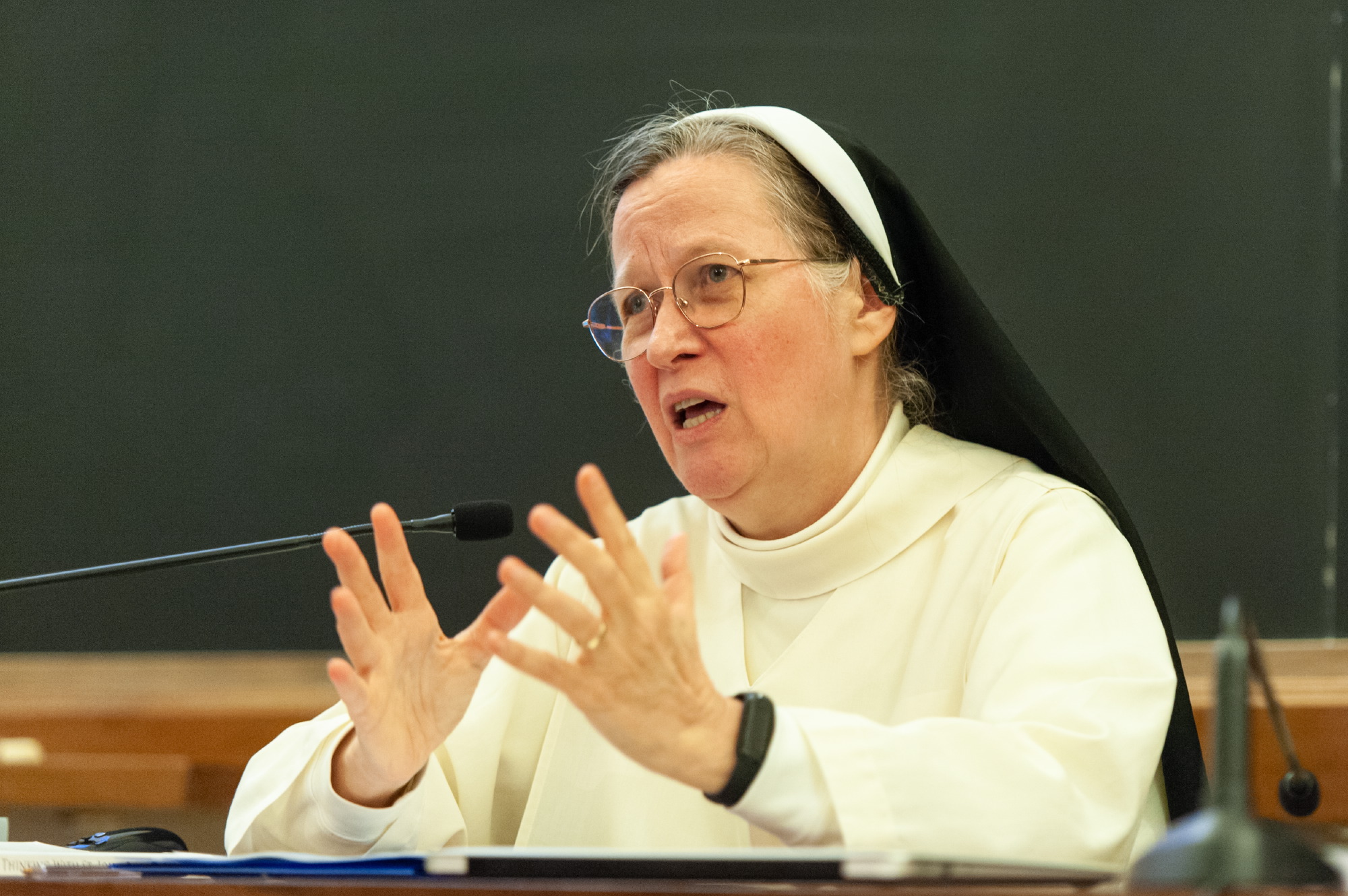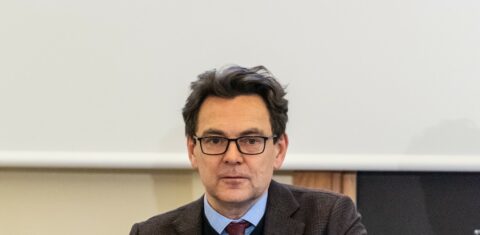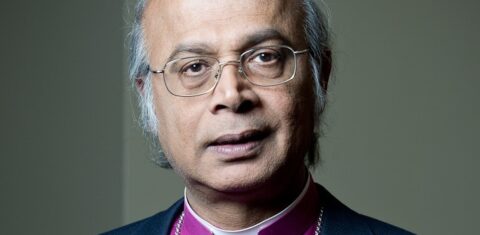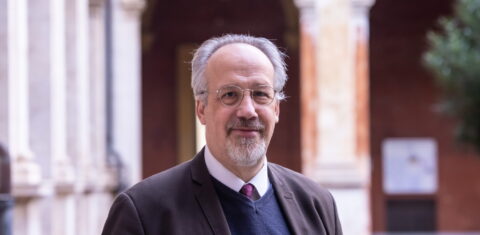In her speech, Prof. Alford engaged in a discussion with the previous lectures presented as part of the “JP2 Lectures” series. At the outset, she referred to the deliberations of Mark A. Cichocki, who challenged the traditionally established geographical divisions between East and West as a determinant of cultural patterns, pointing out the Christian way forward at the modern crossroads of European identity. Prof. Alford noted, however, that according to the author of “North and South,” it is not the Christian option that is in crisis, but rather the post-Christian option, currently in a state of unprecedented tension and uncertainty.
Helen Alford sees the crisis not as the intersection of two very different paths of development, but rather a crisis of the current position of the mainstream, which needs what Christianity can offer it. As such, she sees a wide field in which it could have an impact.
Later in the speech, Alford presented two models for dialogue: the first, taken from Belgian Dominican Dominique Pire, who was awarded the Nobel Peace Prize in 1958, and the second from John Paul II, pointing out that we need both of them to confront the European crisis. She also recalled the reflections of Chantal Delsol, who calls the current situation even more bluntly – a revolution. She draws attention to the disturbing phenomenon of the presence of certain elements of Christianity in a cosmotheistic society and writes: “When tenderness is detached from the source of tenderness, its logical result is terror.”
Alford then referred to a book titled: A Brief Apology for a Catholic Moment by Jean-Luc Marion and quoted a commentary on it by Frederick Bauerschimdt:
“Marion argues that the situation in France, and in the West in general, is so dire that in order to avoid total social breakdown, we must call upon all resources and all forces. Even the Catholic ones. He chooses to characterize this situation as a “decadence” rather than a “crisis.” This decadence is in fact a “crisis of crisis.” It is by infinitely postponing the moment of crisis that the modern world defeats the Gospel, because the Gospel is a call to crisis that requires a decision. The modern allergy to crisis is undermining not only Catholicism, but Western society itself. We are not falling into an abyss, we are suffering from stagnant decadence.”
Later in the paper, Prof. Alford undertook an analysis of financial crises in light of the Church’s social teaching. She recalled an anecdote according to which one of the vice presidents of Goldman Sachs, based in London, read Caritas in veritate, after which he called the then archbishop, now cardinal of Westminster, to tell him, “This is the best analysis of the financial crisis I’ve read. You should do something about it.” As a result, the archbishop convened a meeting of City of London bank bosses, as well as other business leaders, around some quotes from the encyclical. In the end, they all agreed that they needed to continue these discussions. The result was the creation of a charitable fund called “Blueprint for Better Business.” Prof. Alford went on to outline how the charity functions. She stressed that it draws on the body of theological thought that is not under the control of business leaders.
Next, Alford focused on the thought of the American theologian Bill Cavanaugh and Italian economic historian Luigino Bruni. Their ideas were used to reflect on modern capitalism understood as a kind of idolatry. As she pointed out, Cavanaugh notes that in the Bible, idolatry refers to behavior rather than adherence to an official belief – more like adultery or some other kind of betrayal or disloyalty or having an erroneous concept of God. – “Idolatry is not only about God, but also about money, things and power. We can form totemic communities around things,” Alford stressed. She also recalled Cavani’s formulated criterion for idolatry: the measure of whether or not you indulge in a false God is whether that God “devours you.” The speaker also drew attention to the pitfalls of modern marketing, which creates an almost mystical sense of identity associated with ownership of the promoted product.
Later in the lecture, Prof. Alford continued with the characteristics of the “Blueprint” organization, which bases its approach to the economy on natural law. She also drew attention to its personalistic dimension, based on Maritain’s thought.
In conclusion, Prof. Alford stressed the need to build an economic theory that starts from a much more realistic, personalistic conception of man than a “homo economicus” seeking primarily the satisfaction of his own interests. At the center of this reflection should be a human being directed towards relationships and the idea of “freedom to”.
In closing, Prof. Alford recalled her visit to a Ukrainian Angelicum student in Kiev shortly after the 2013-2014 uprising. She recalled the hundreds of young people shot then in the Maidan, later dubbed the “Heavenly Hundred.” During that visit, she heard from one of the Greek Catholic bishops: “You must remember that these were the first young people who gave their lives for Europe.” Prof. Alford pointed to these young people, giving their lives for freedom, as an inspiration also for us facing the European crisis.
Foto: Stefano Dal Pozzolo

